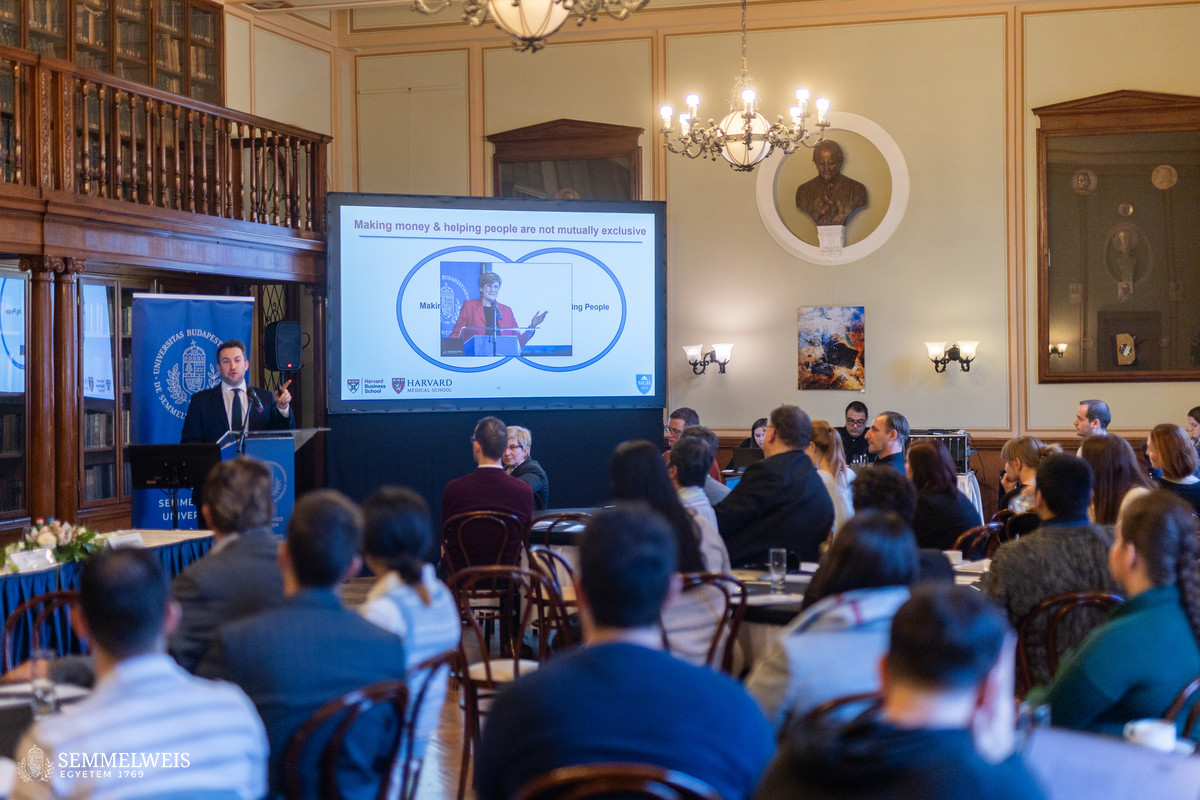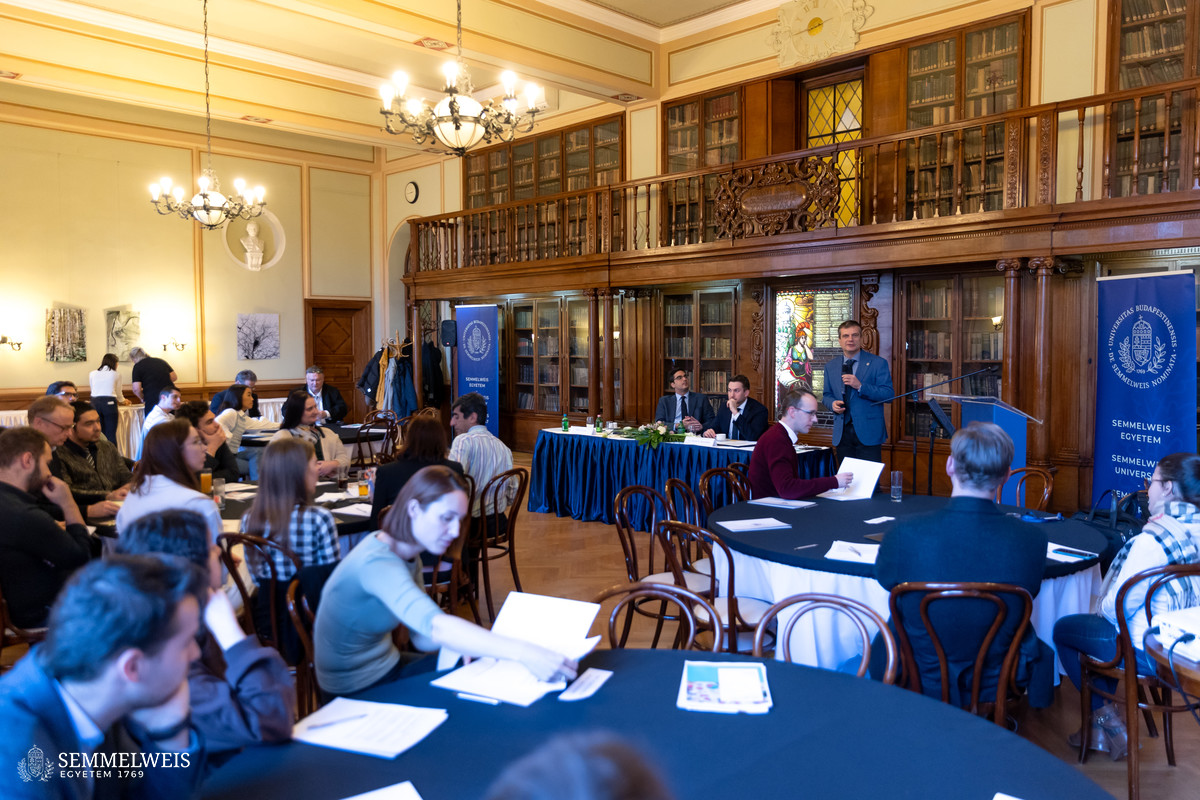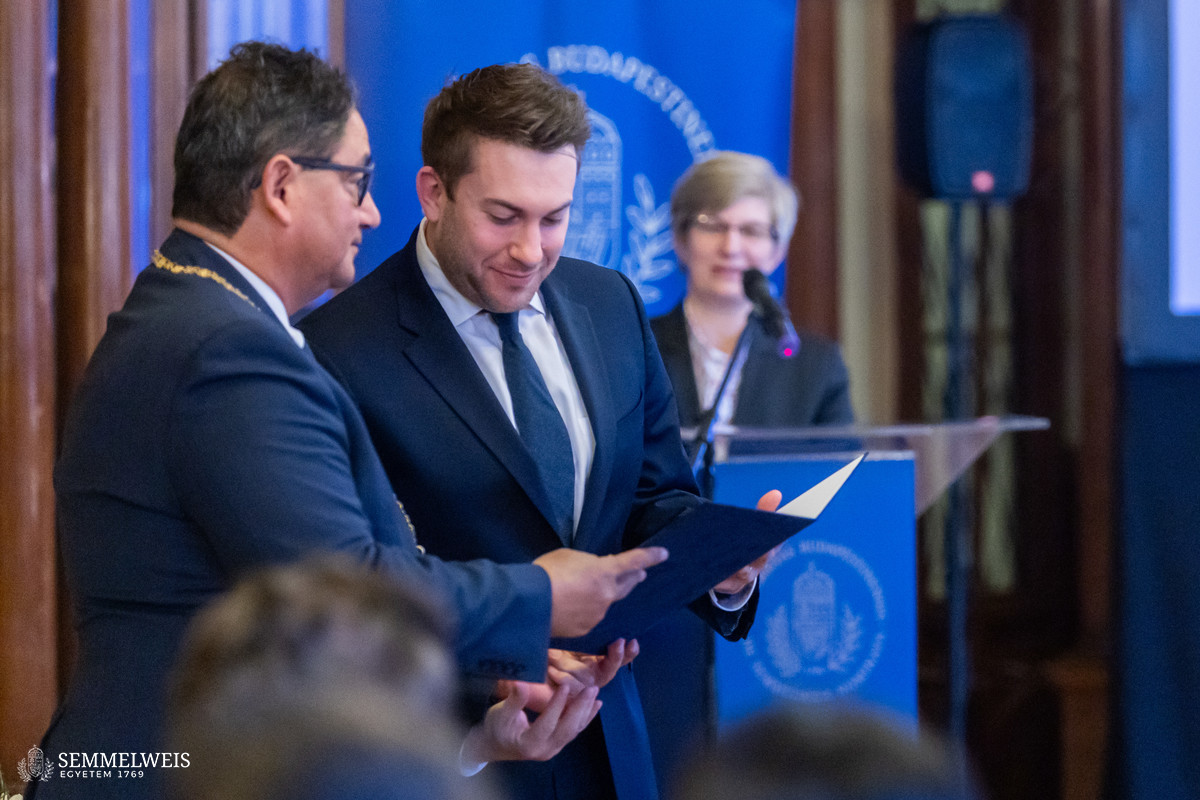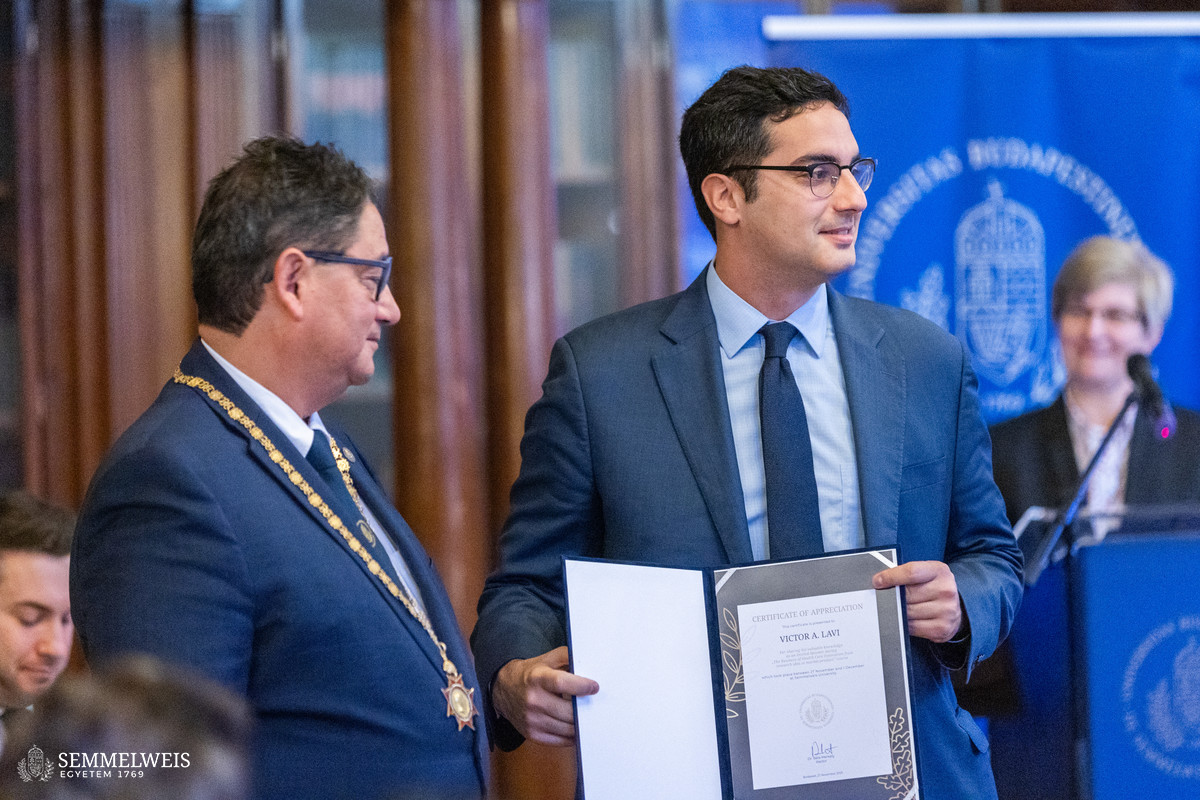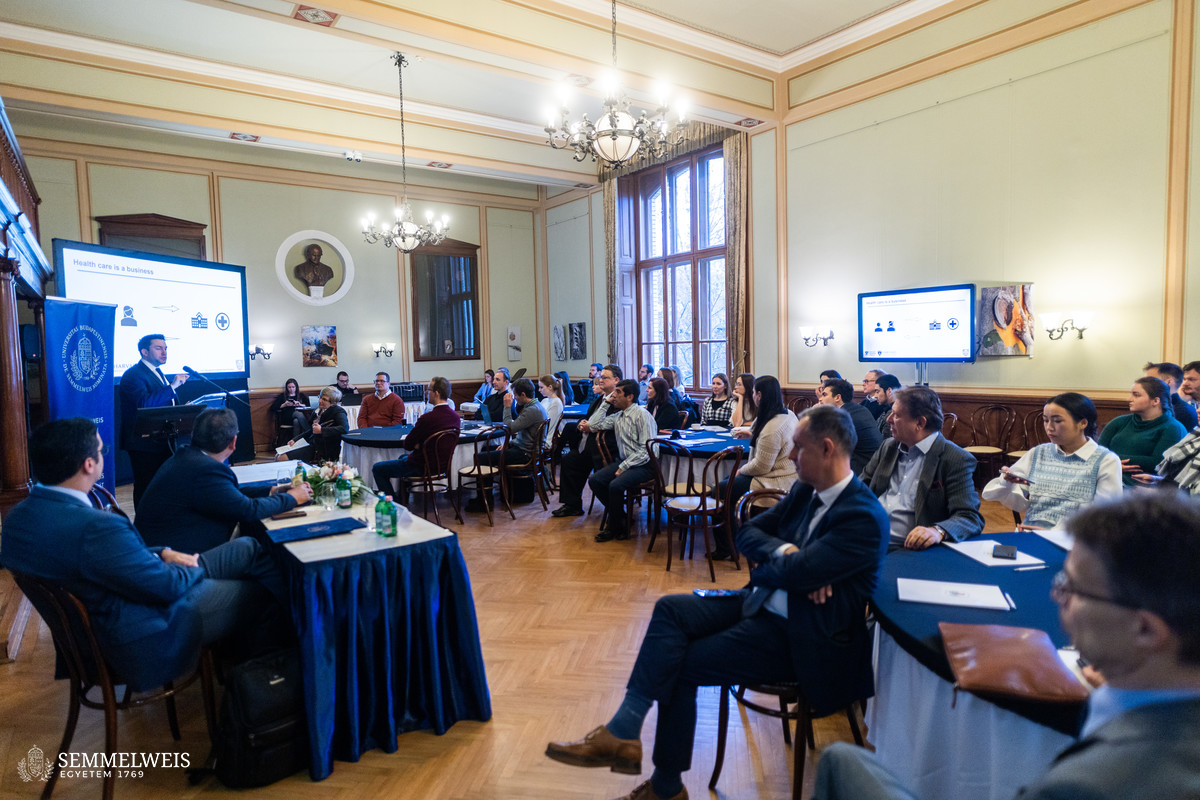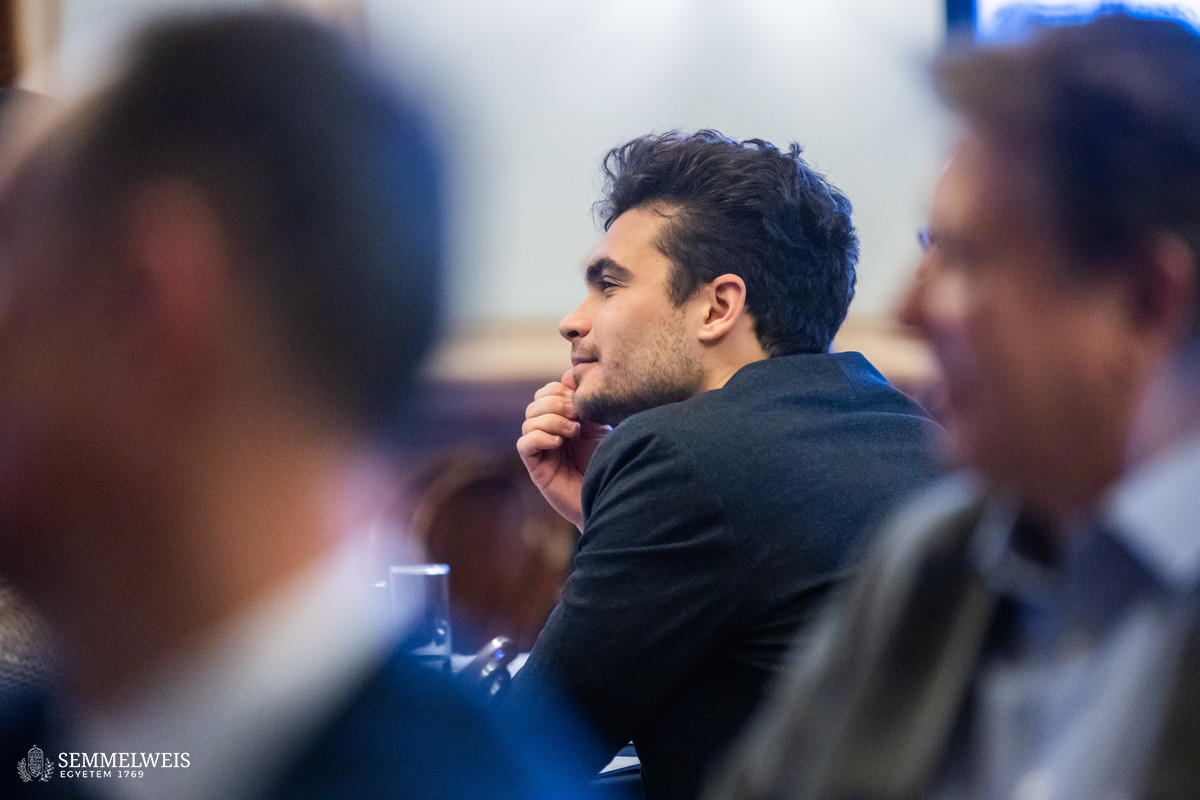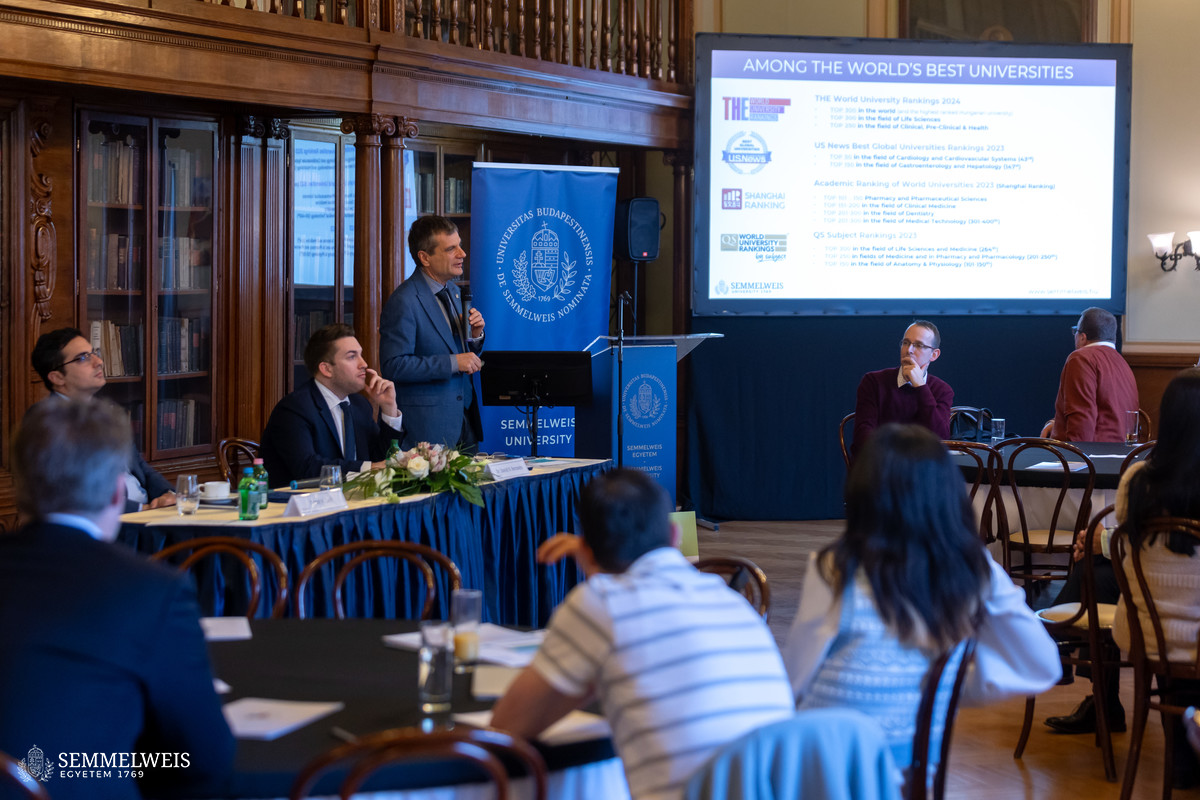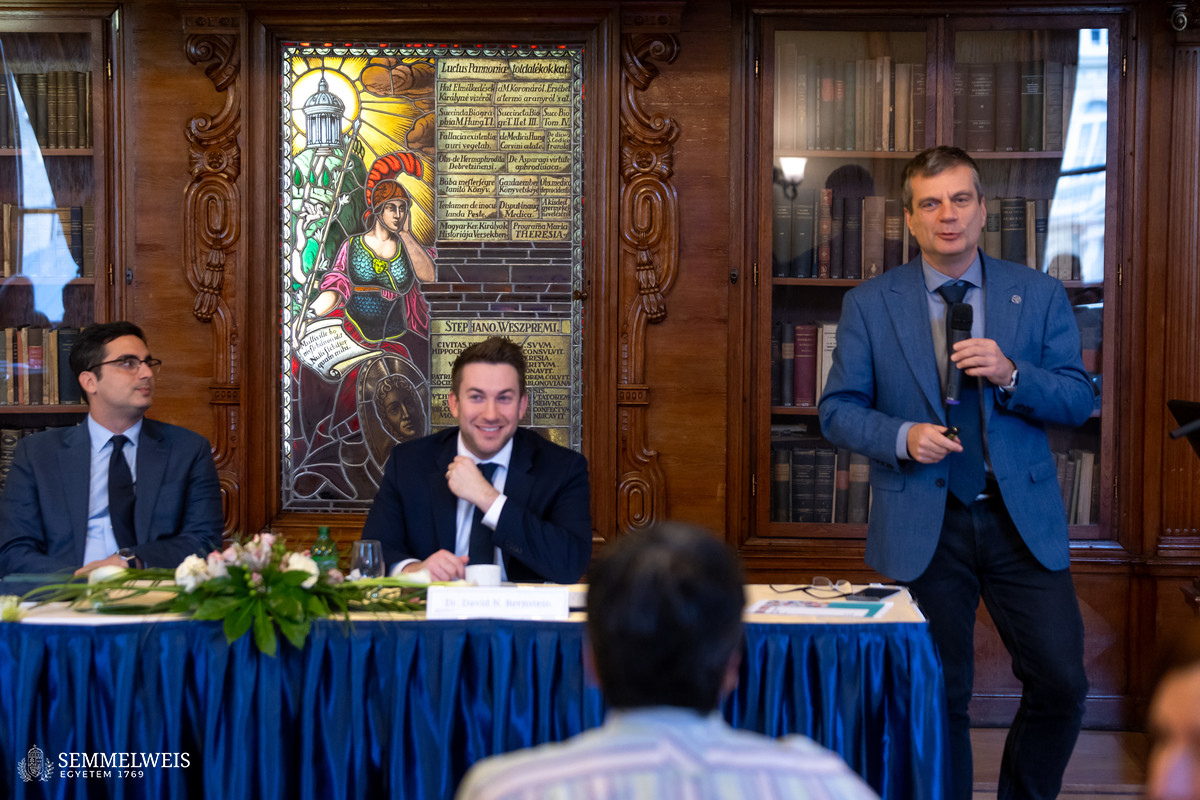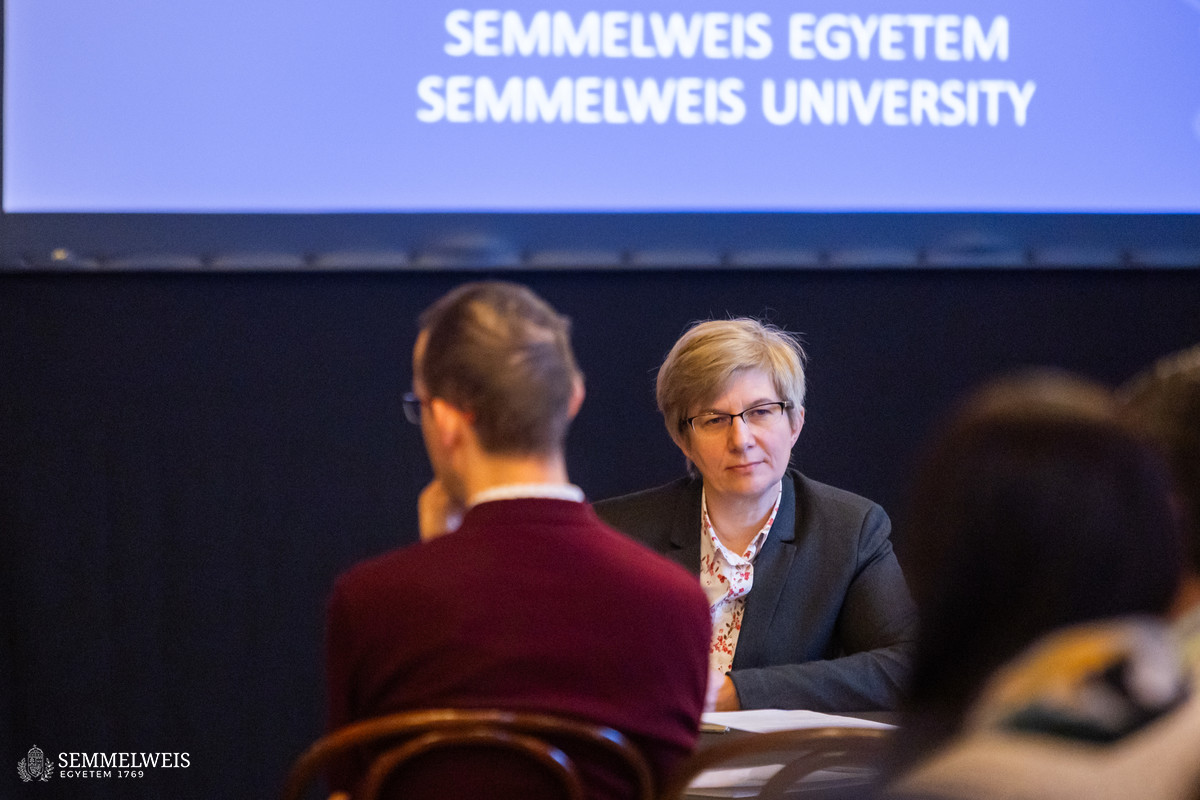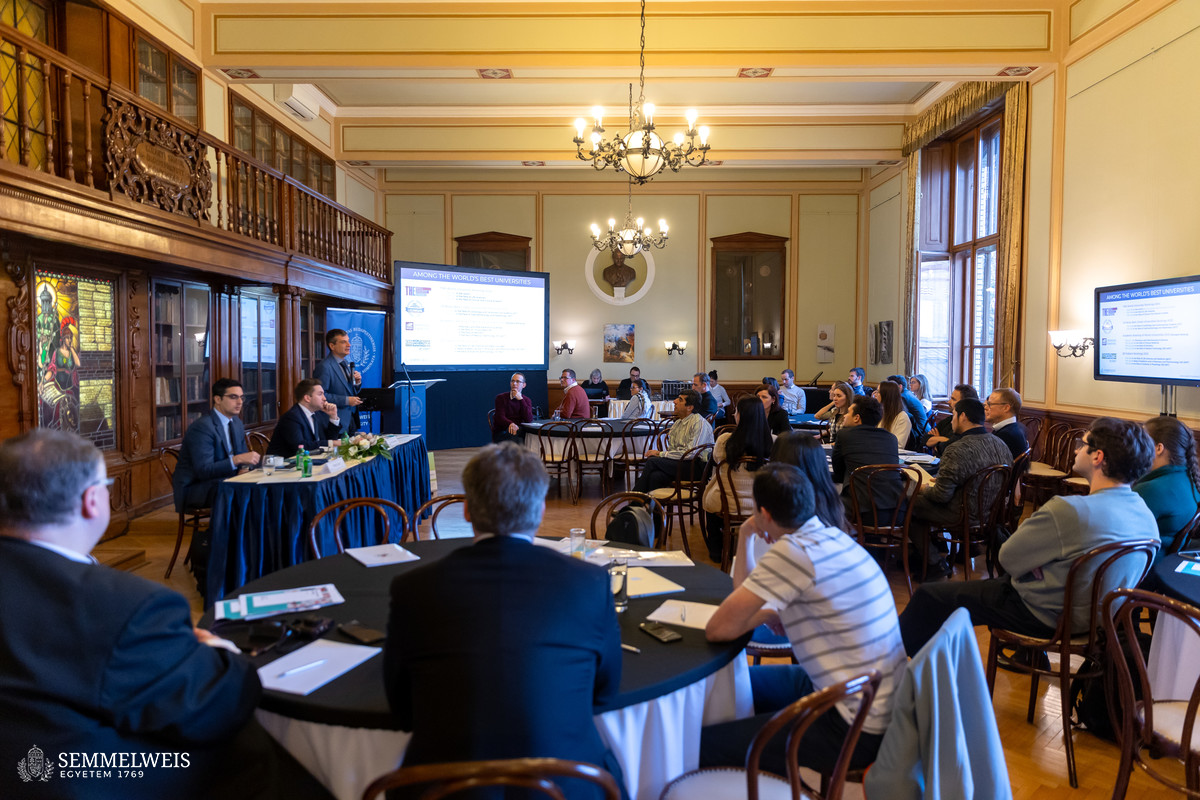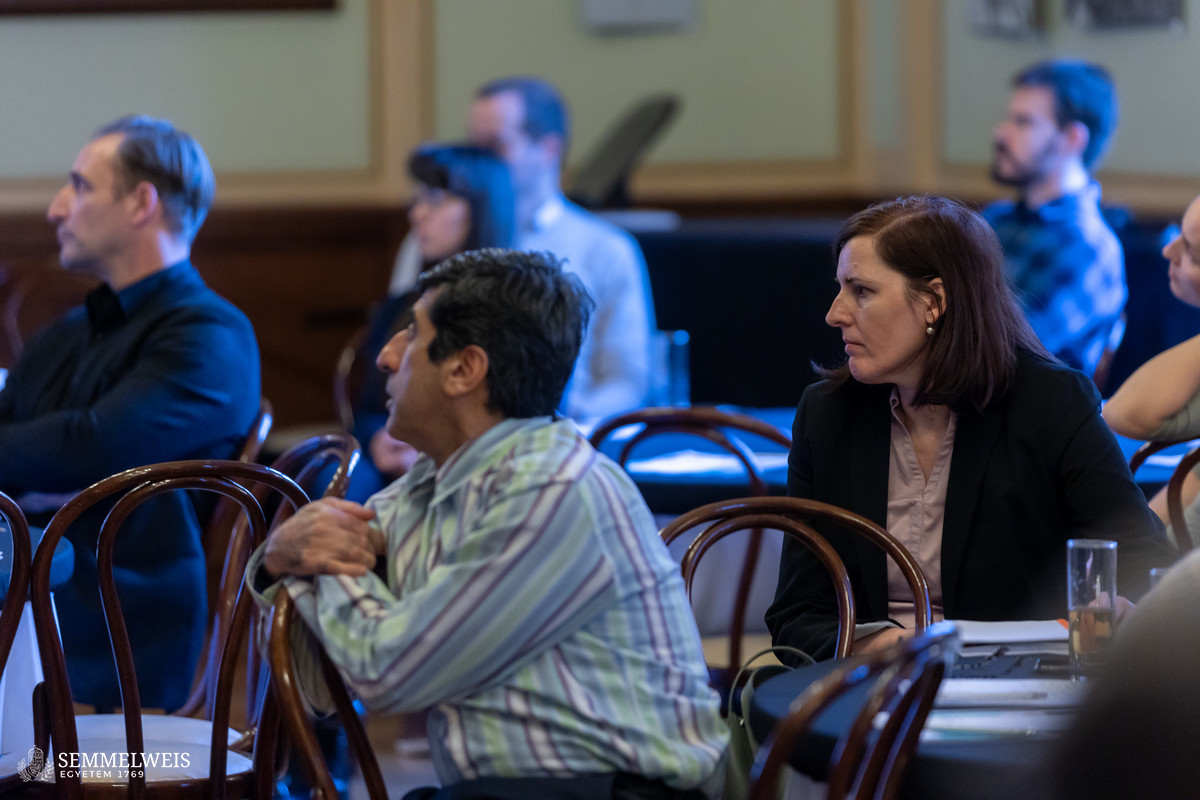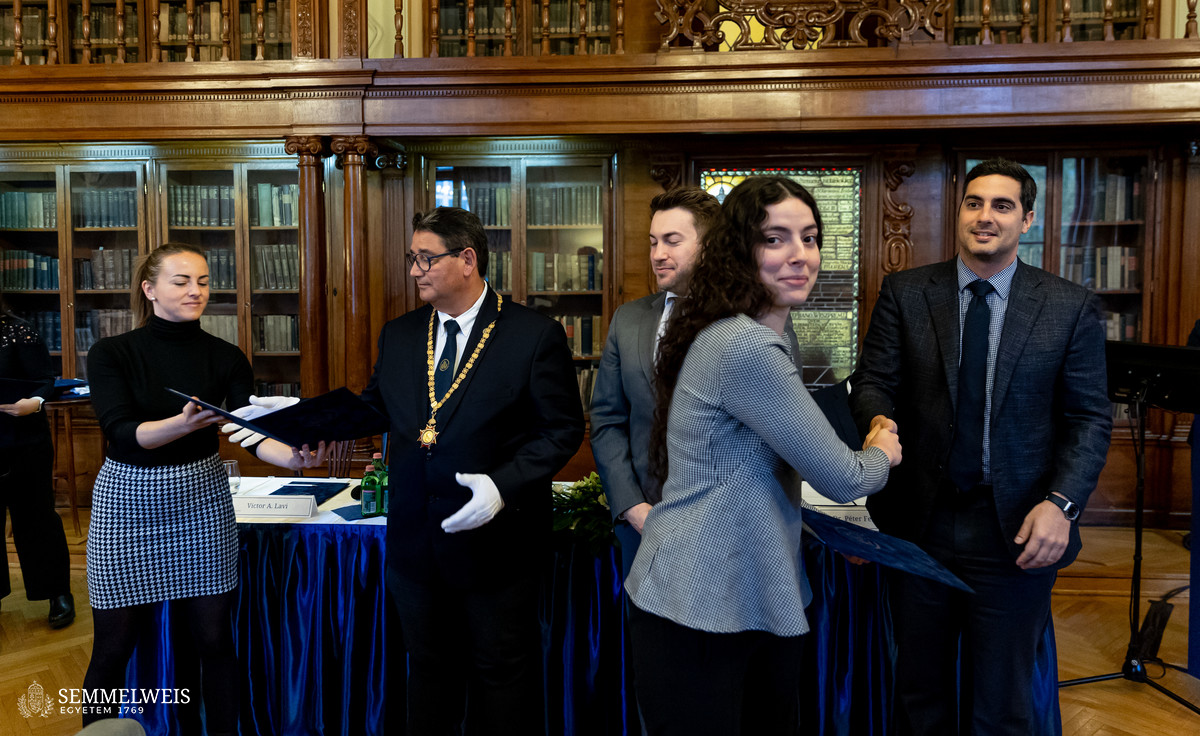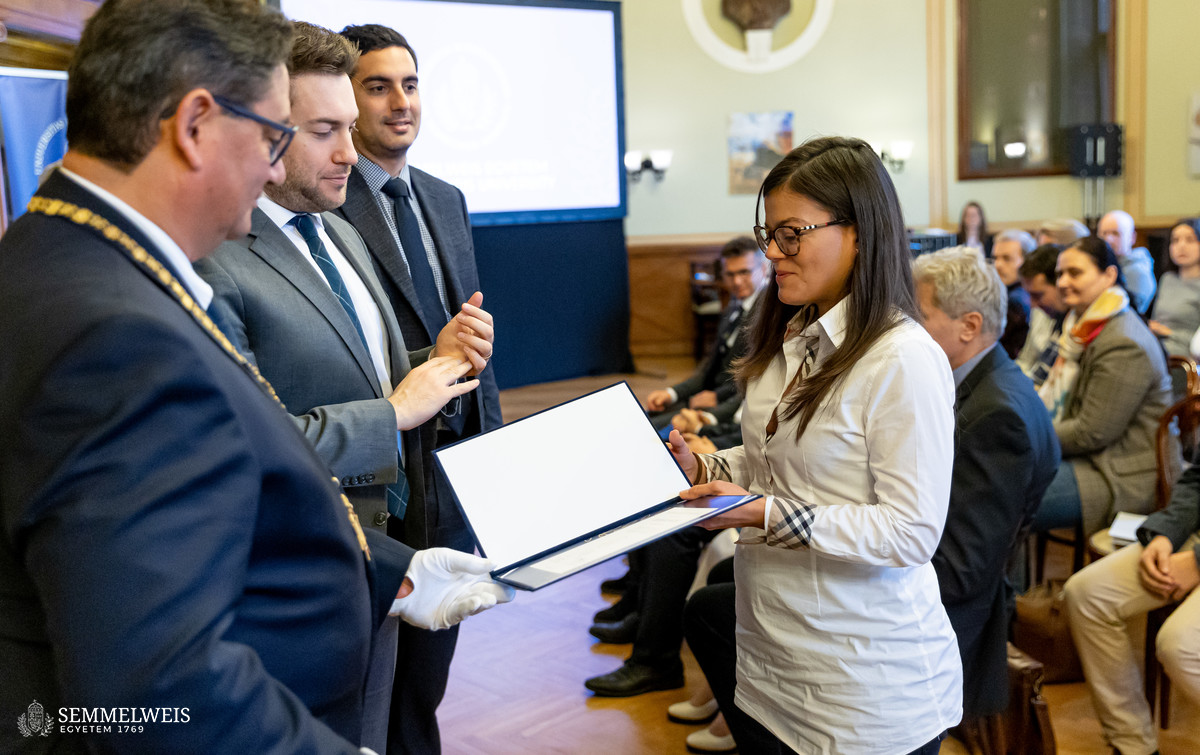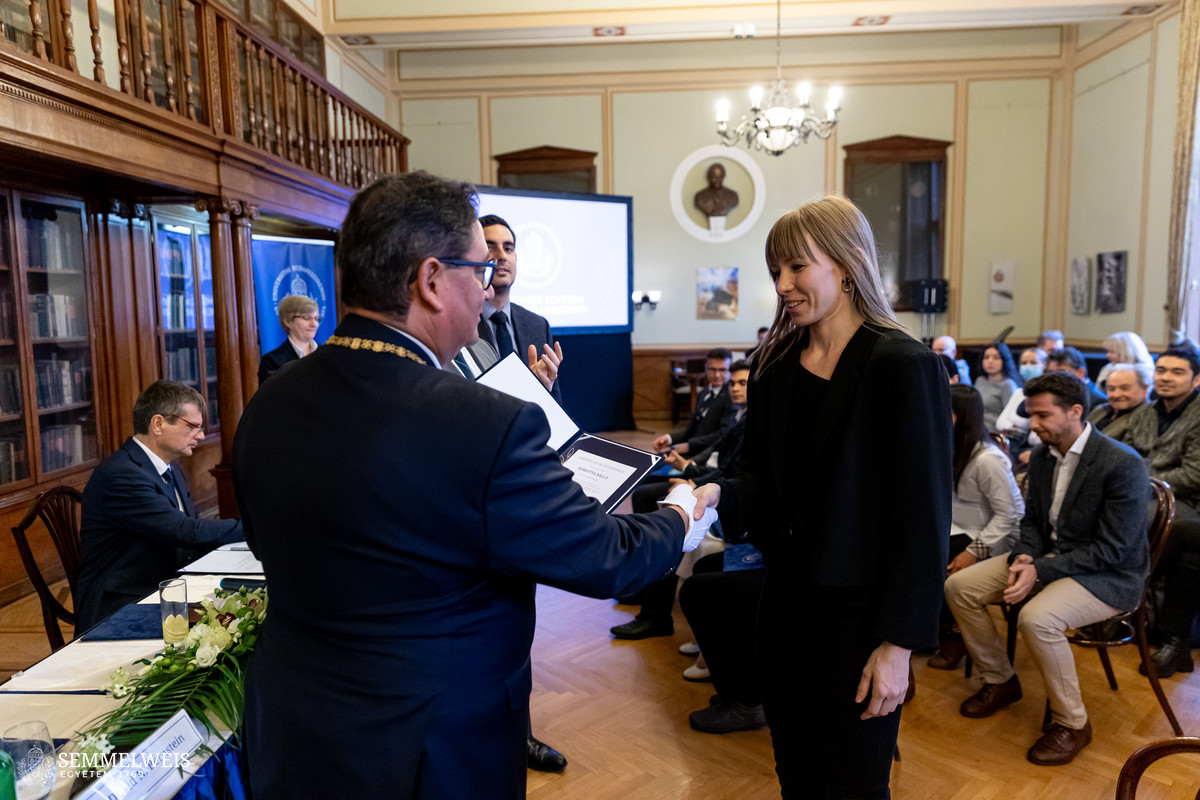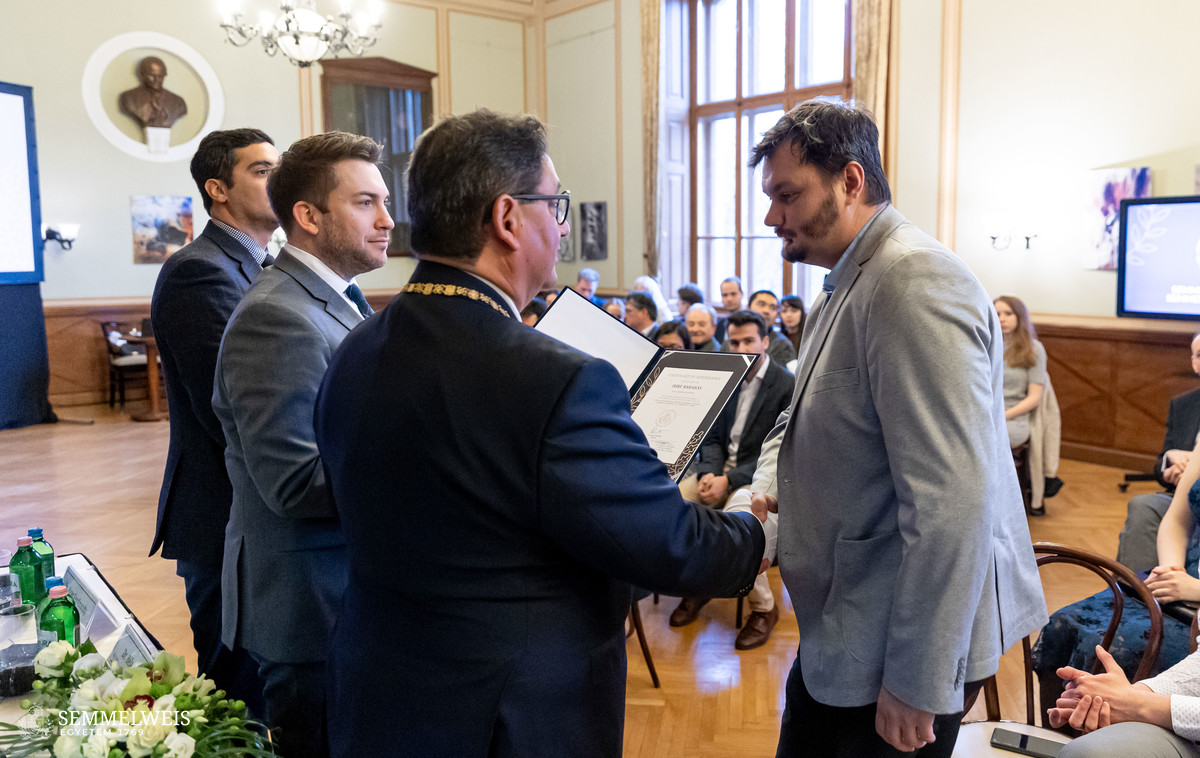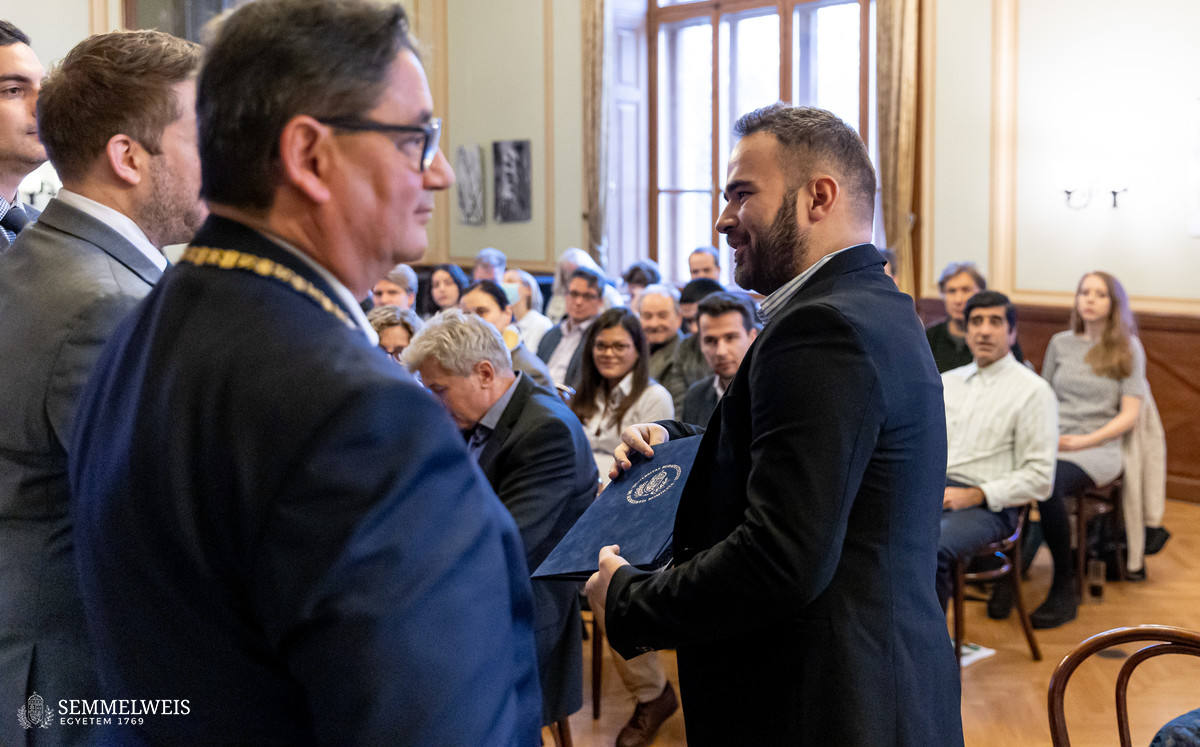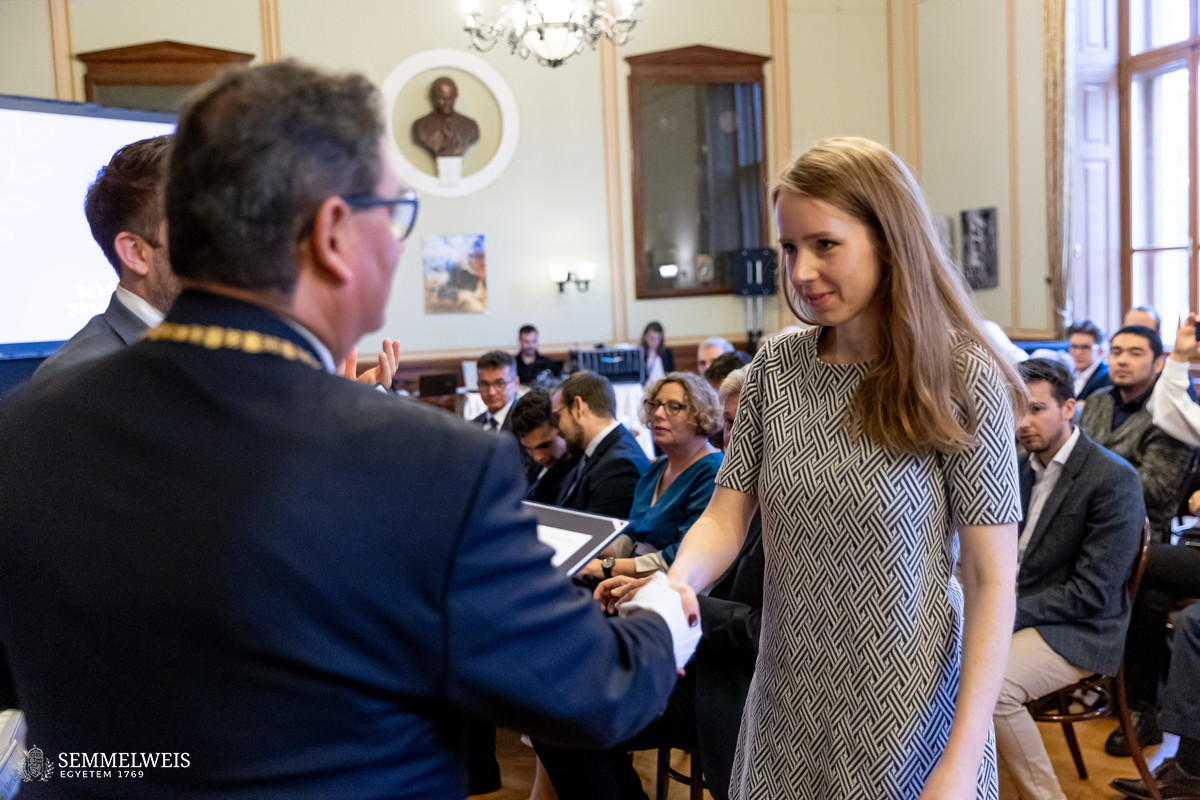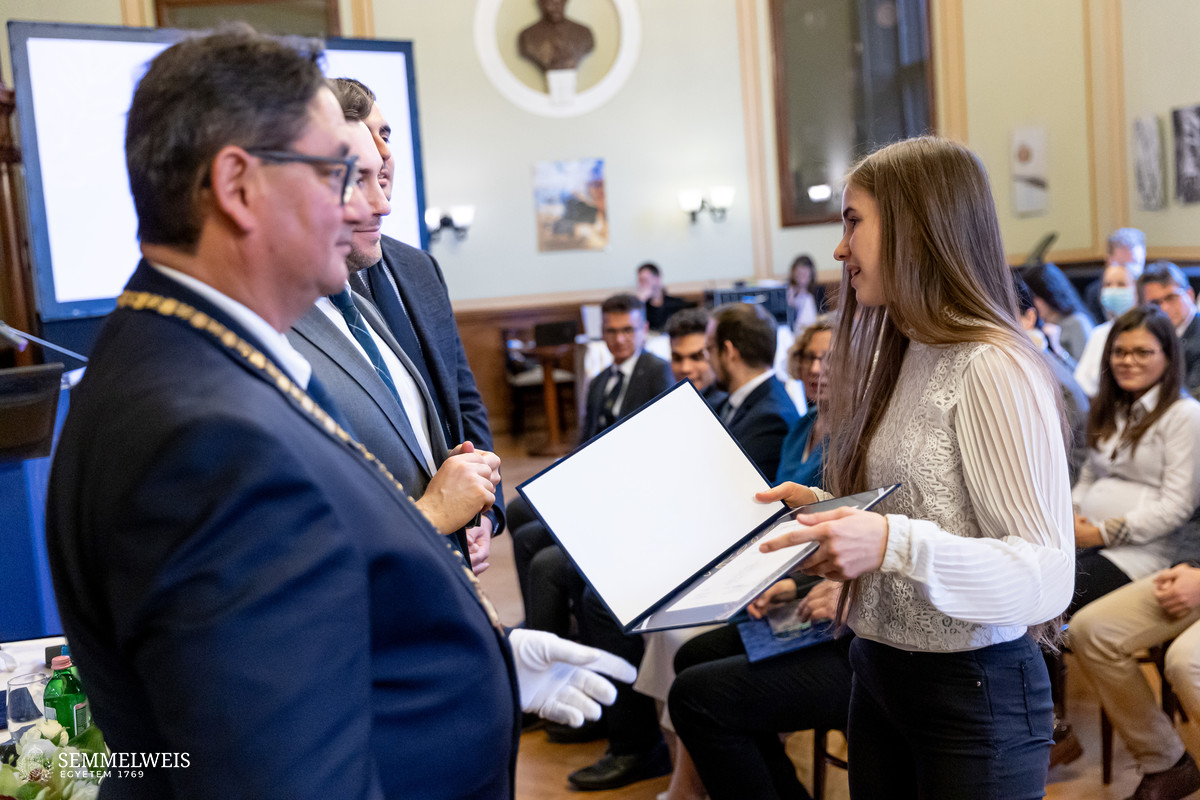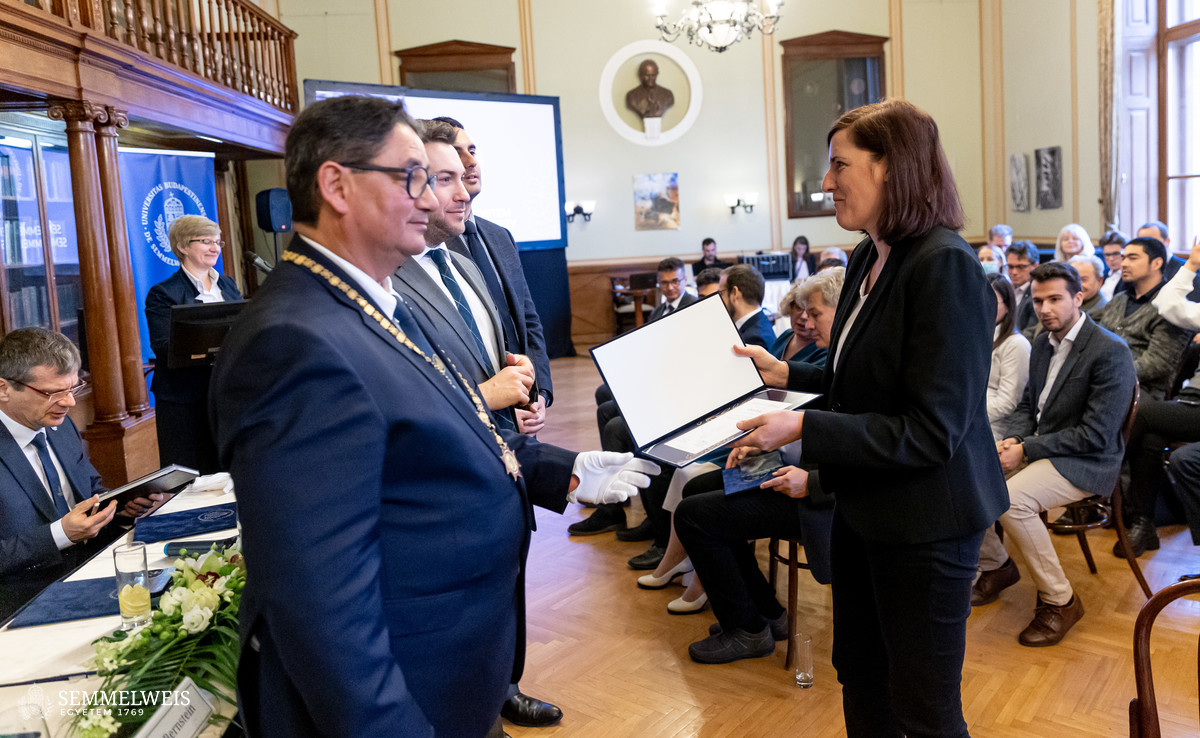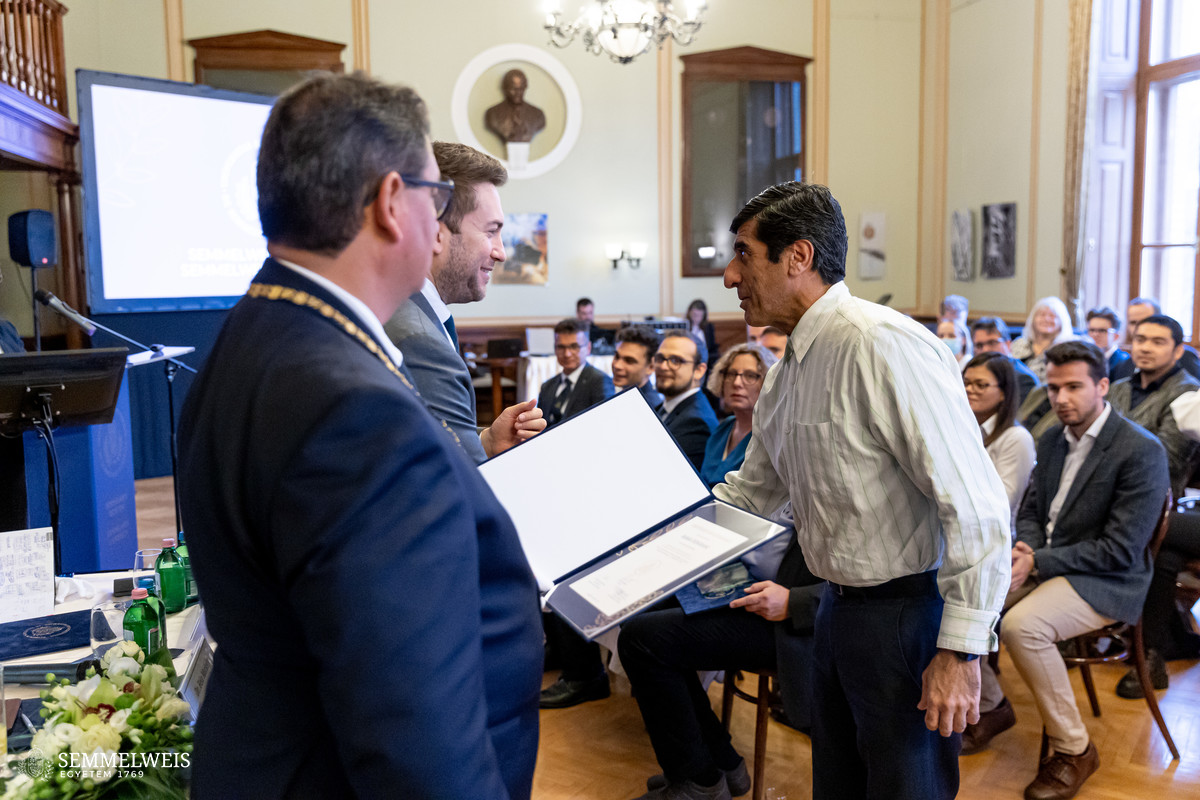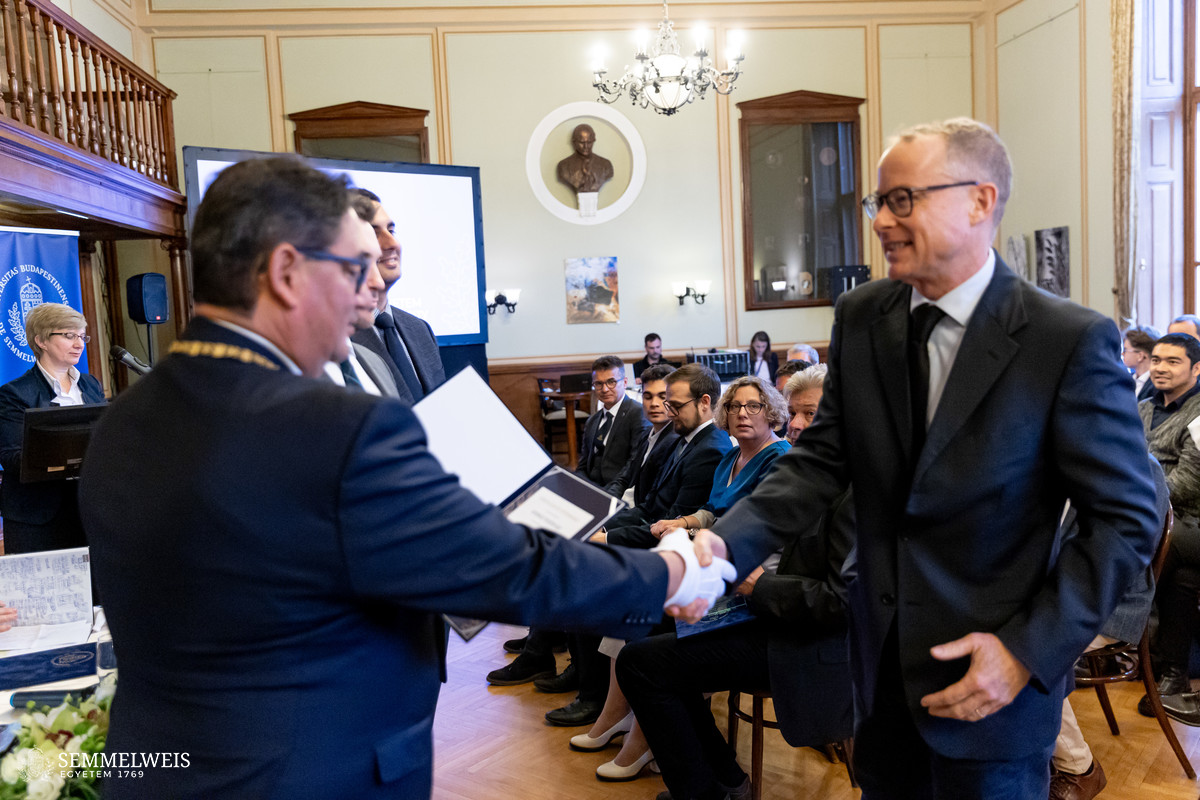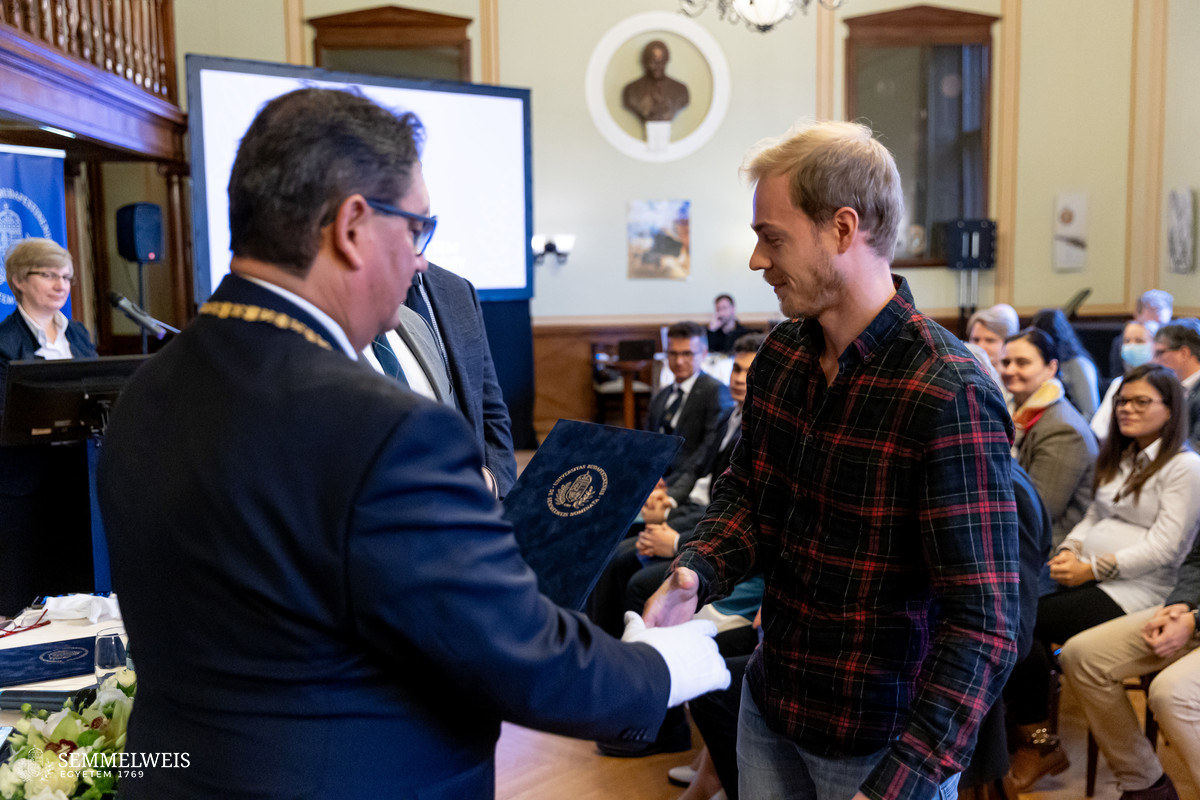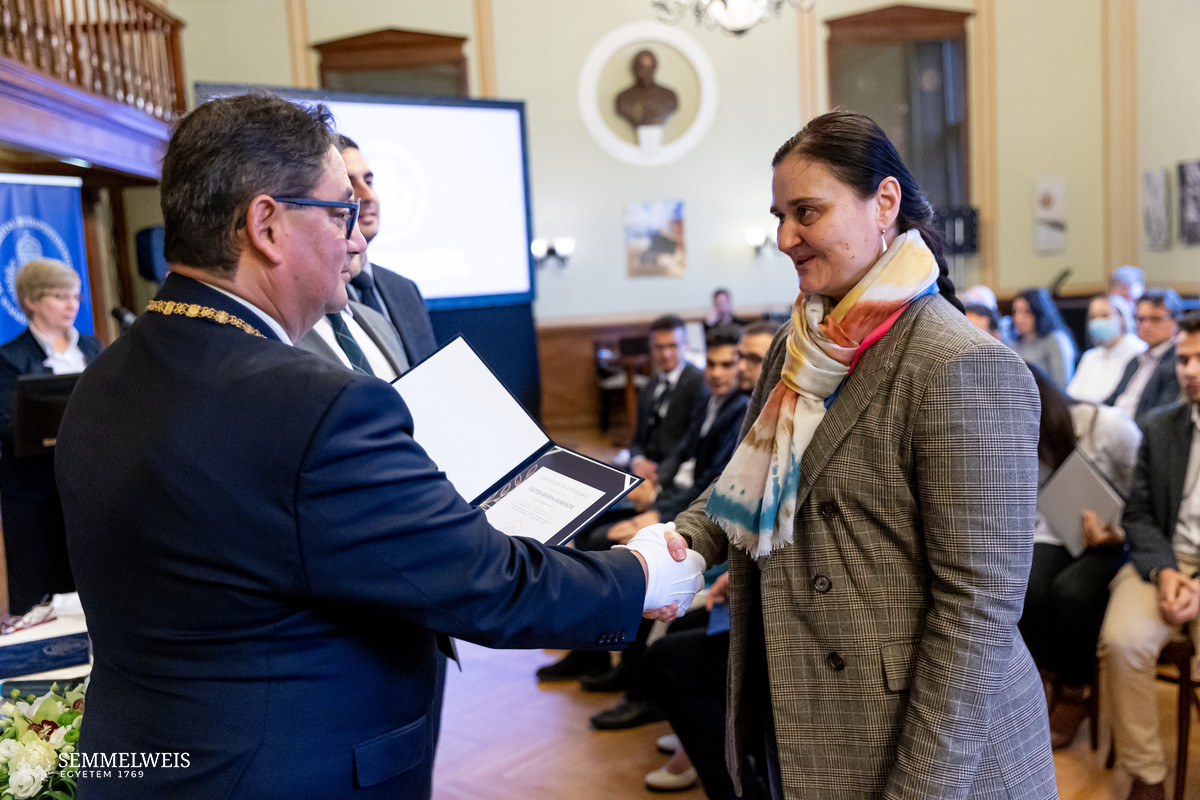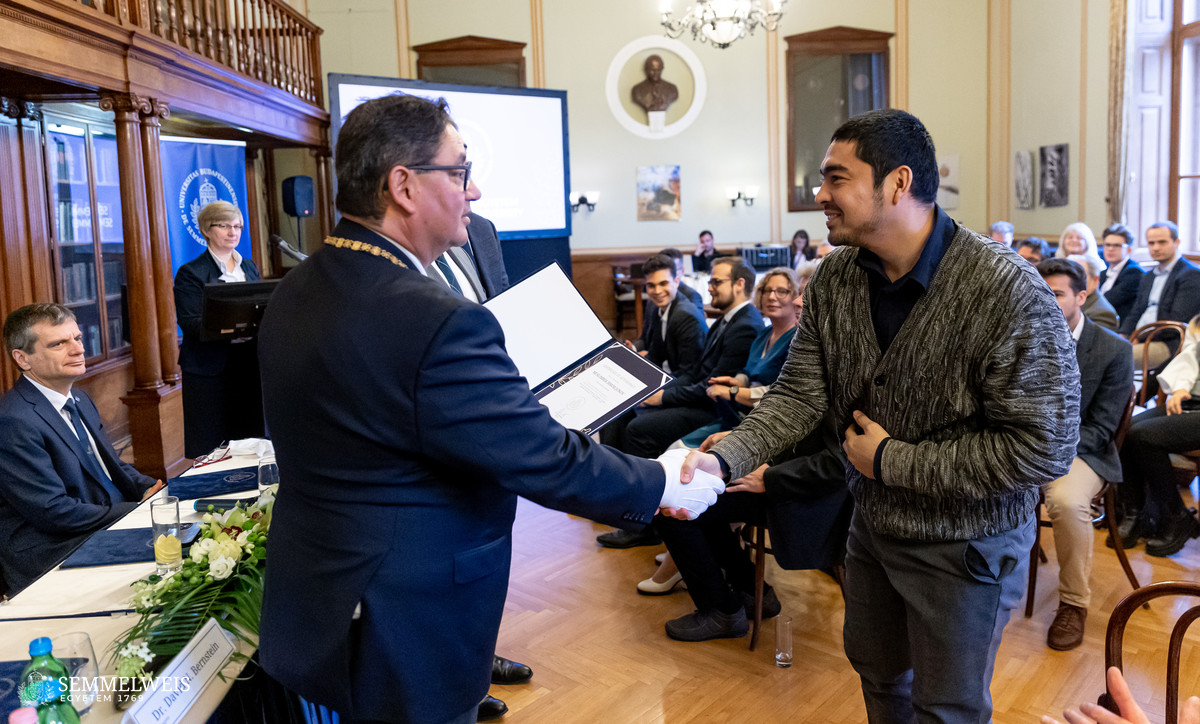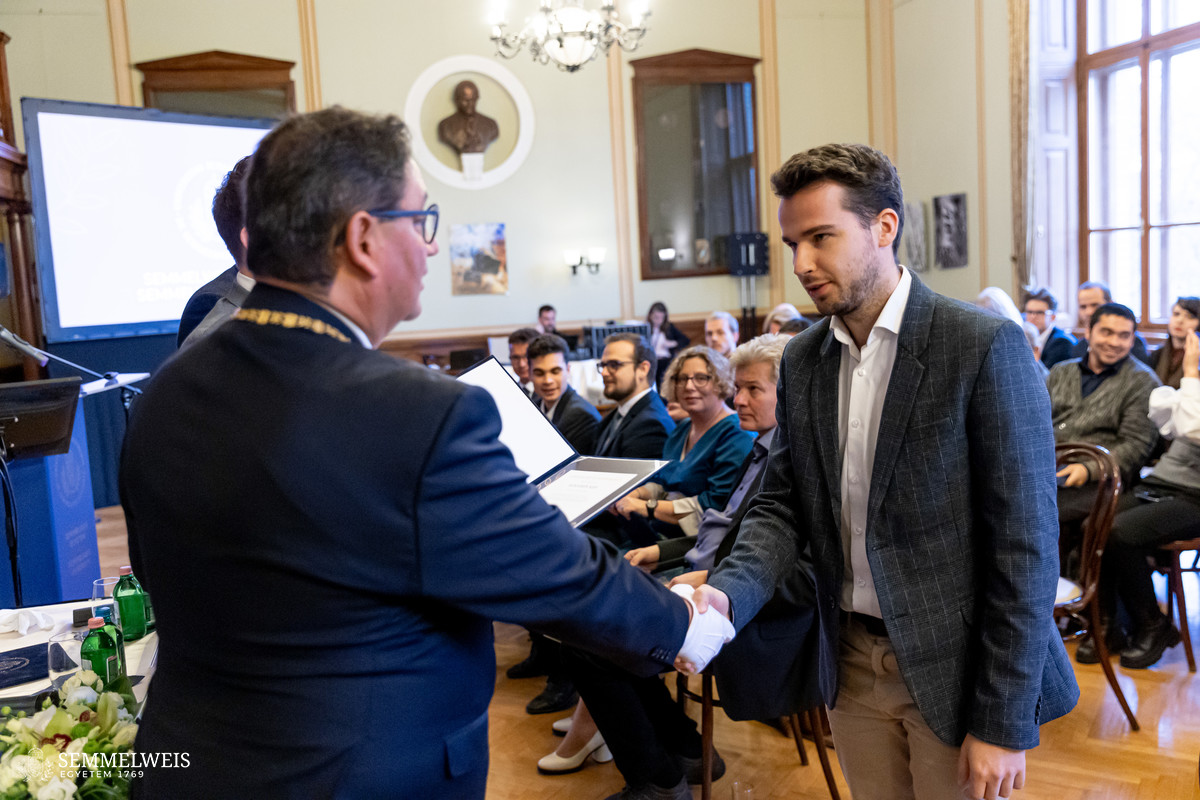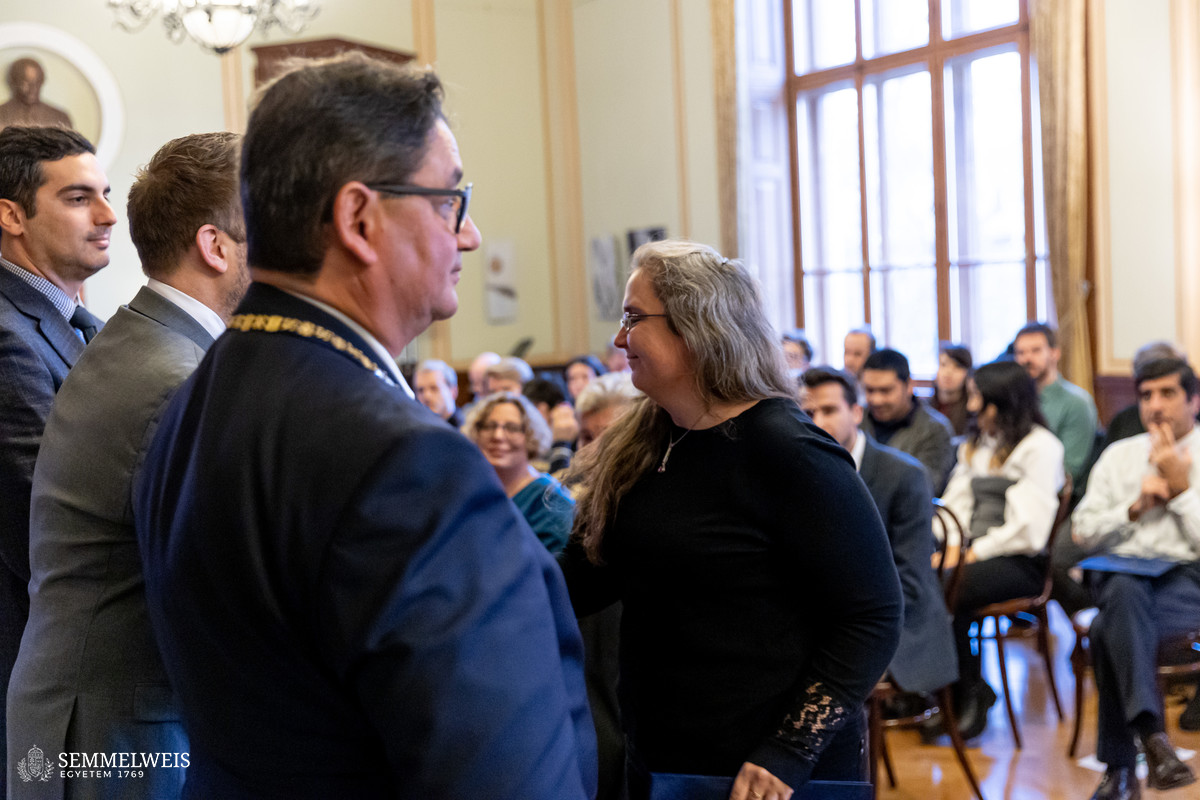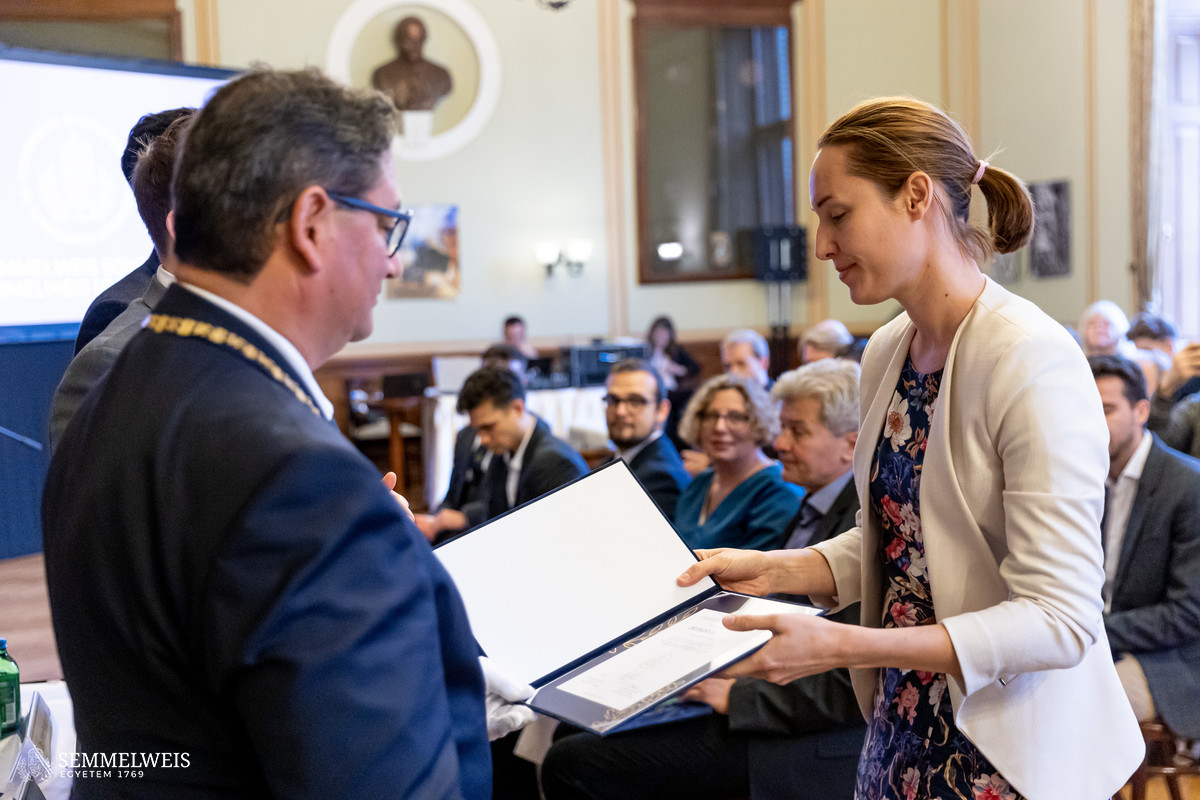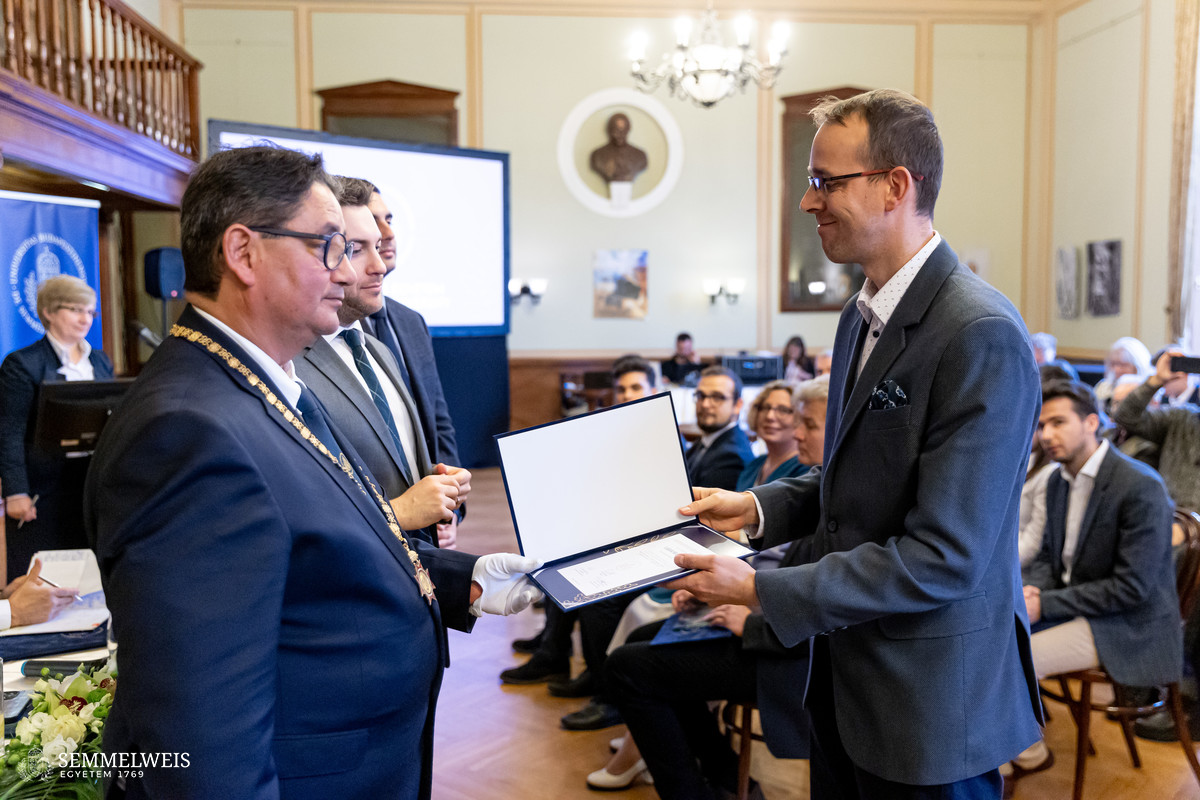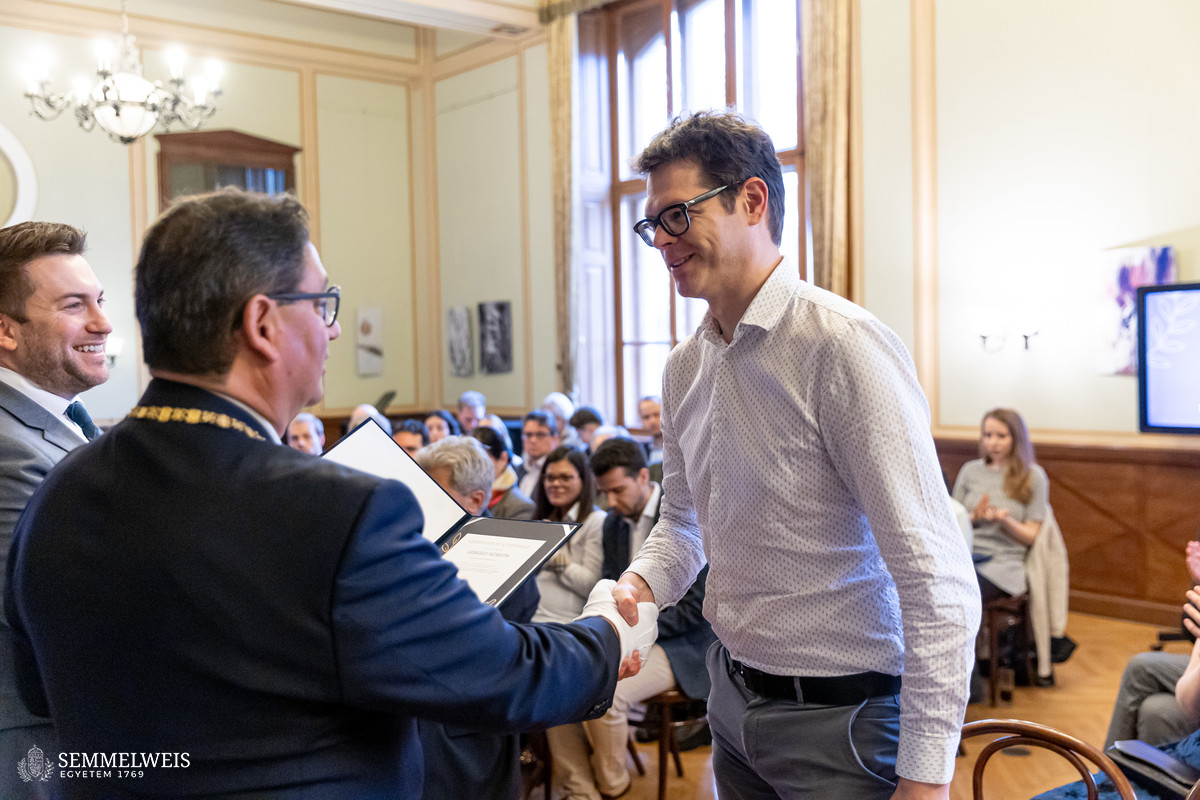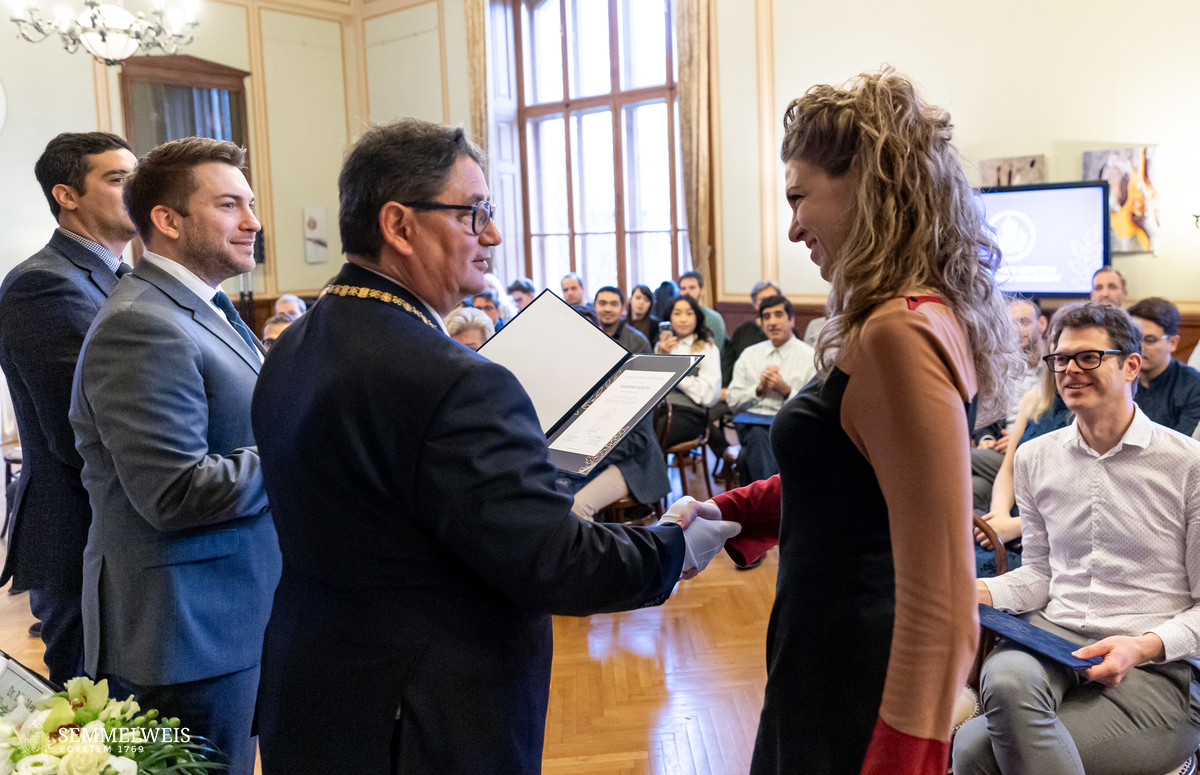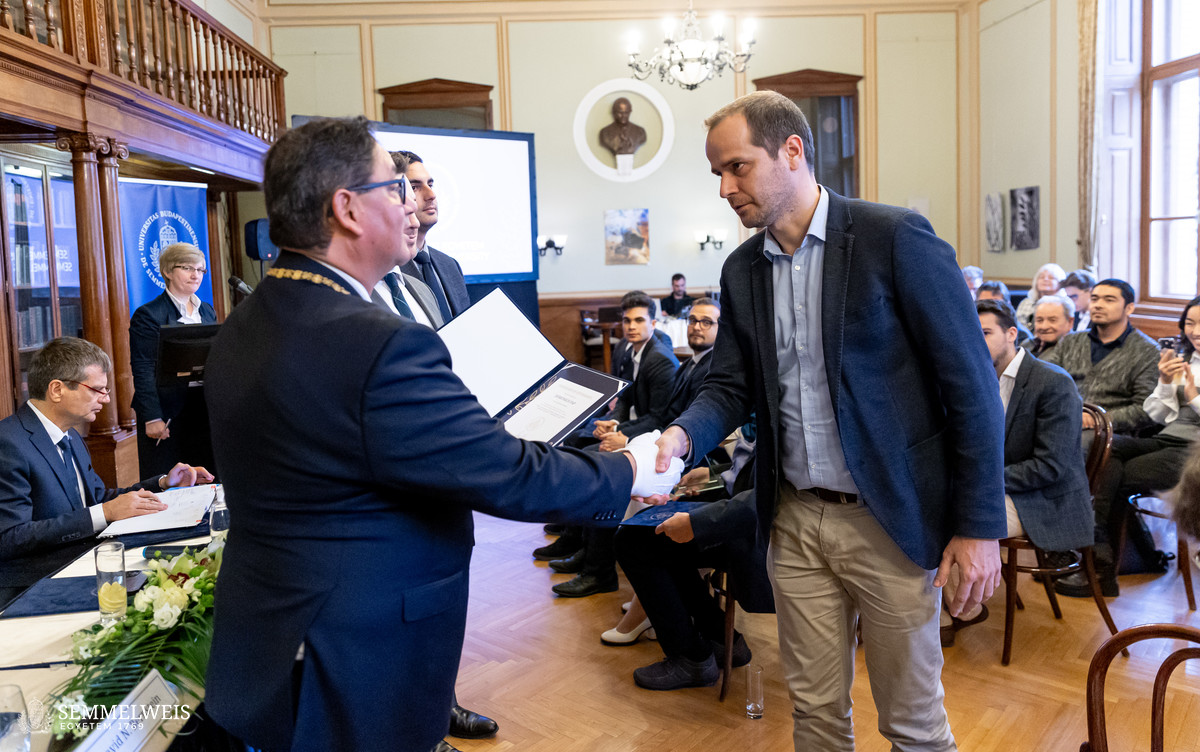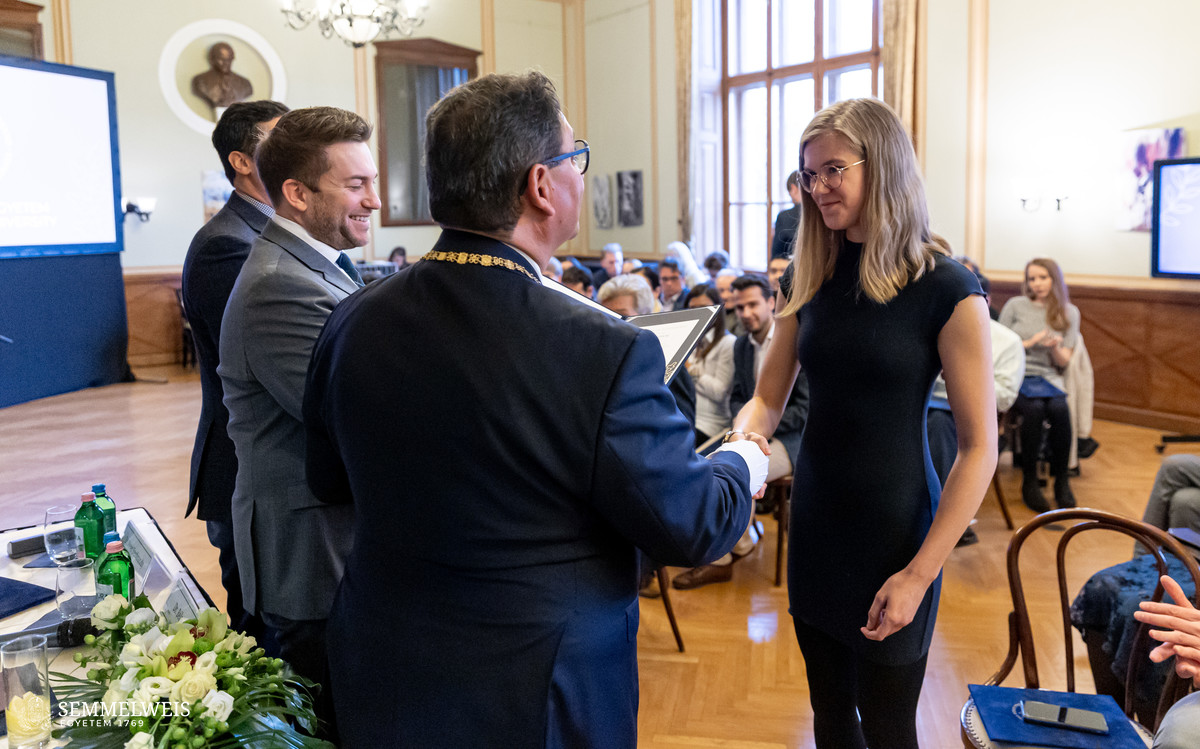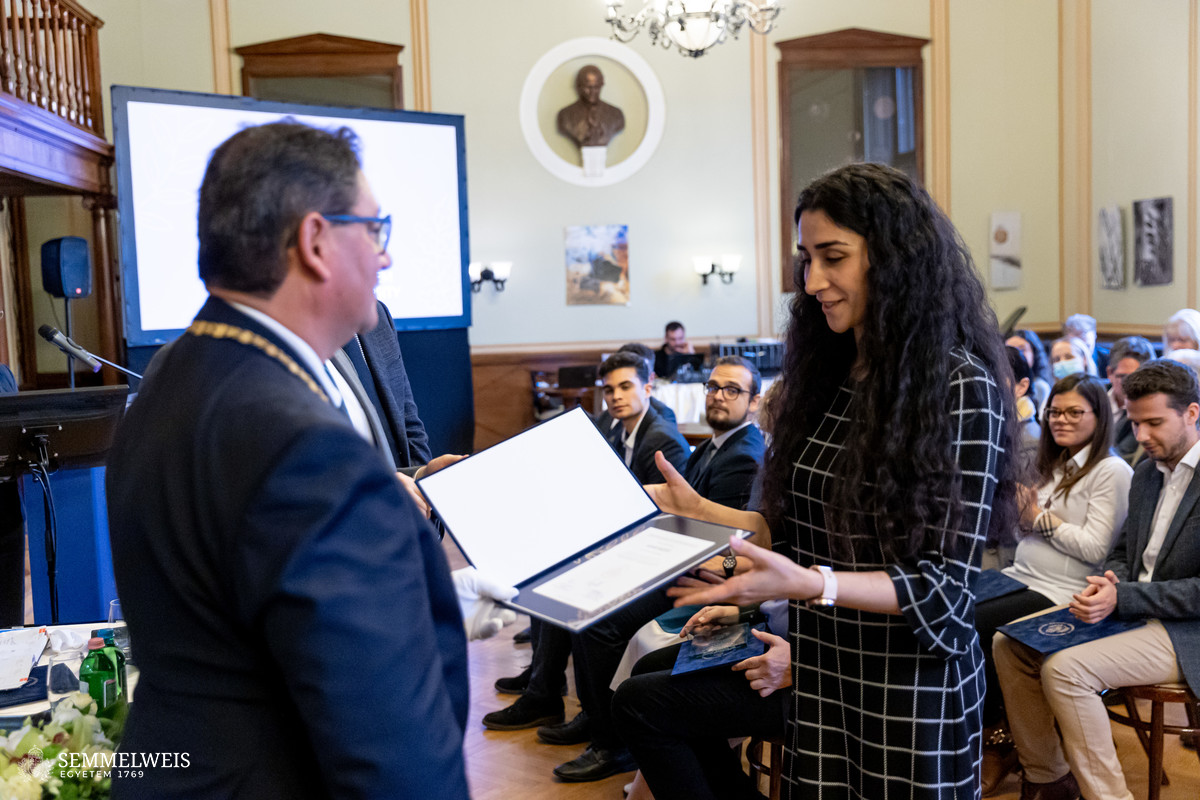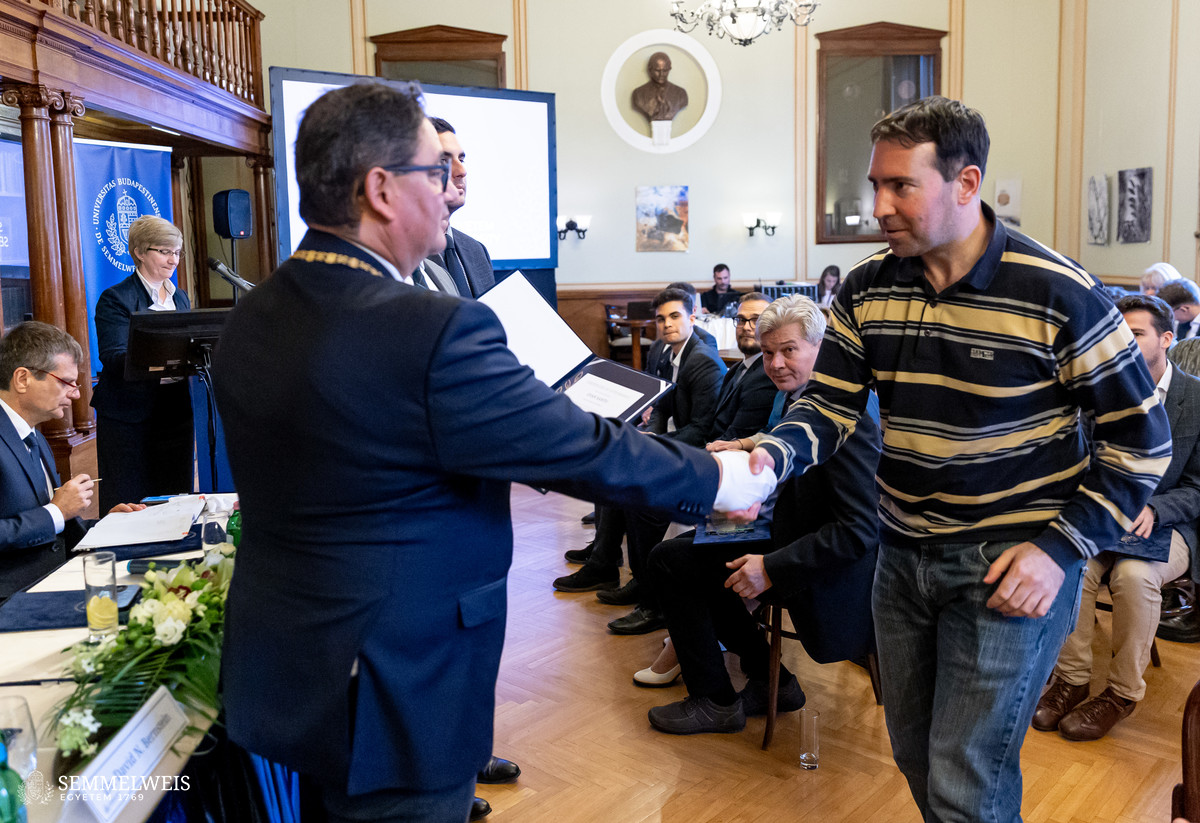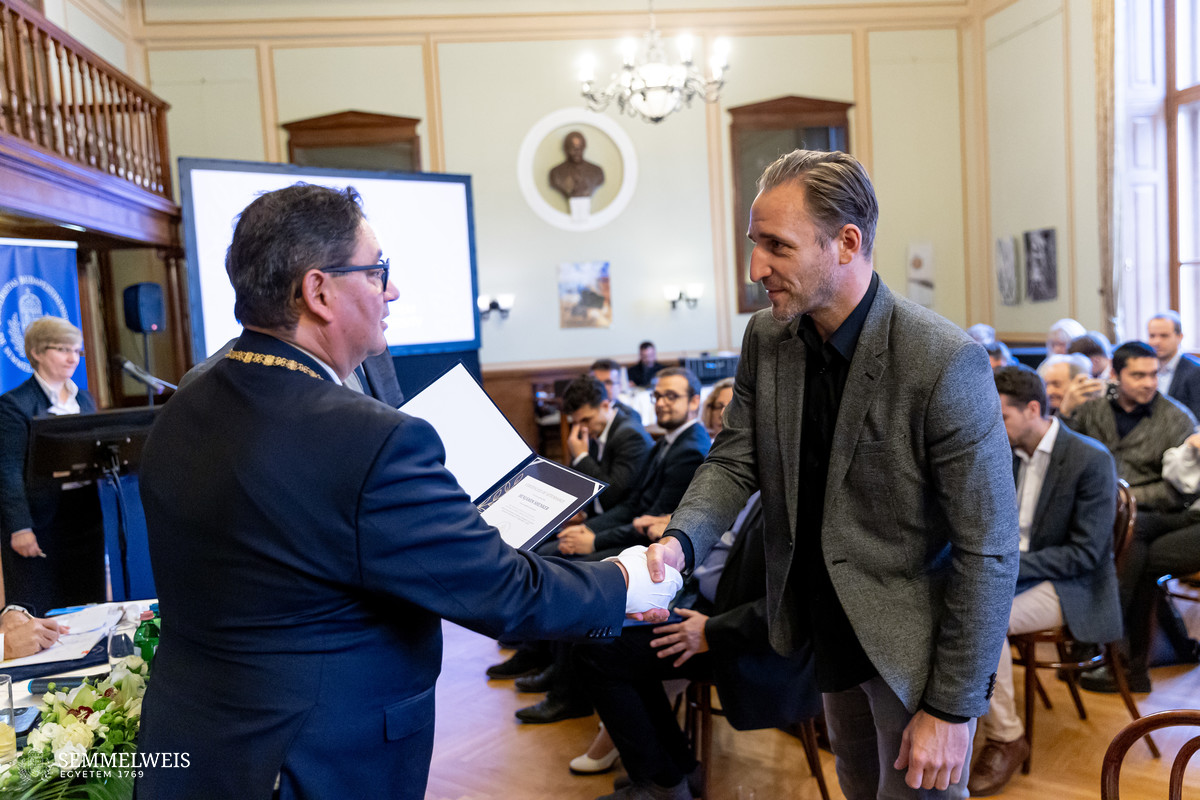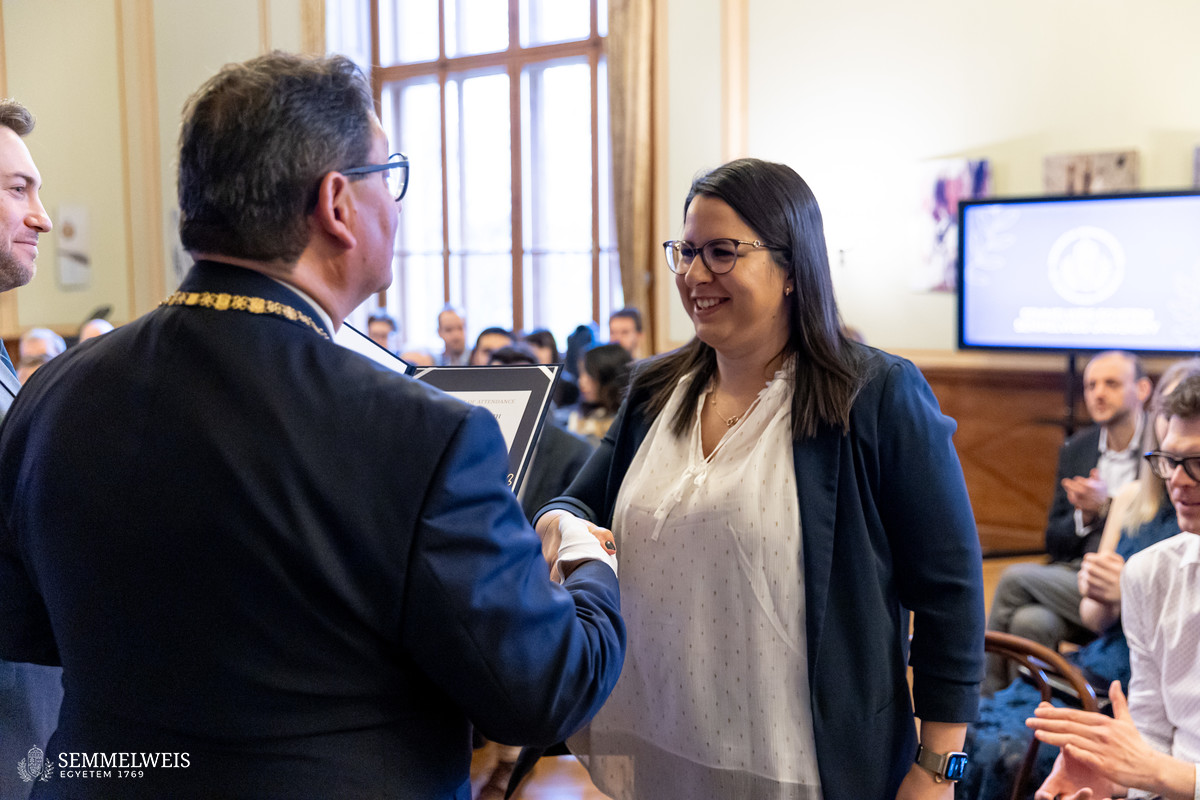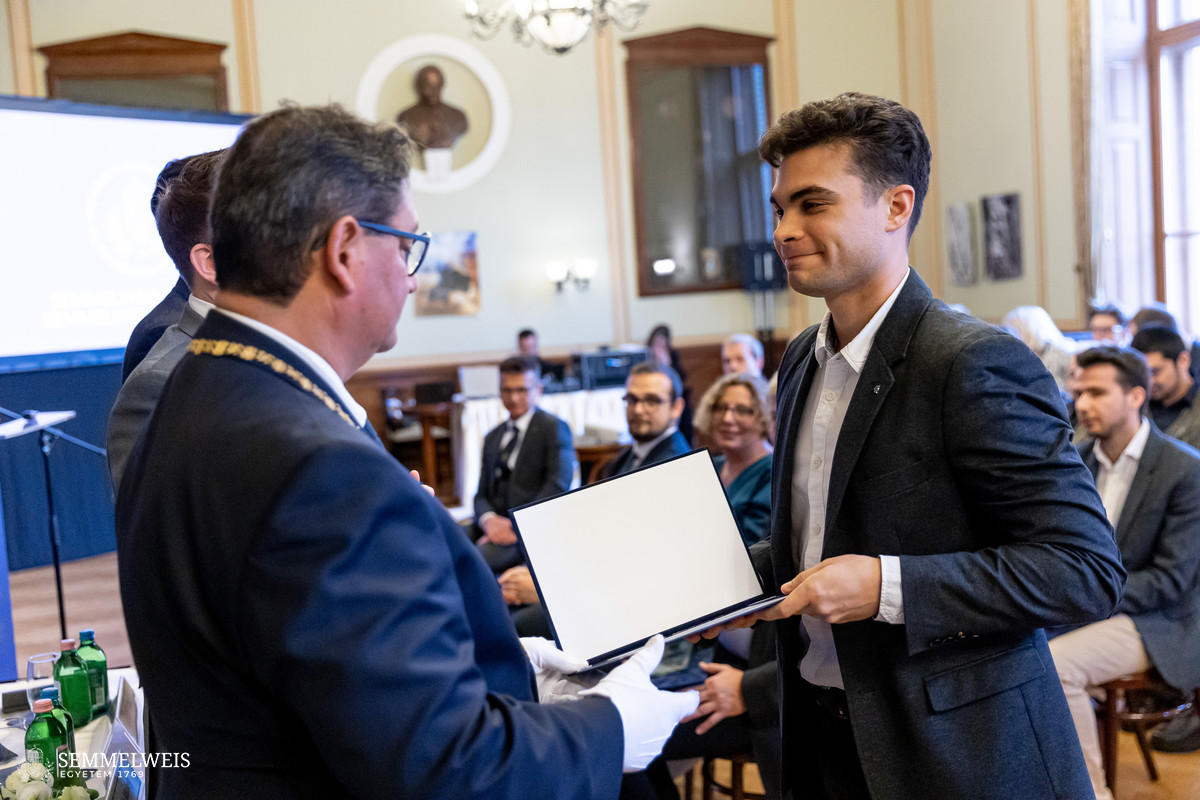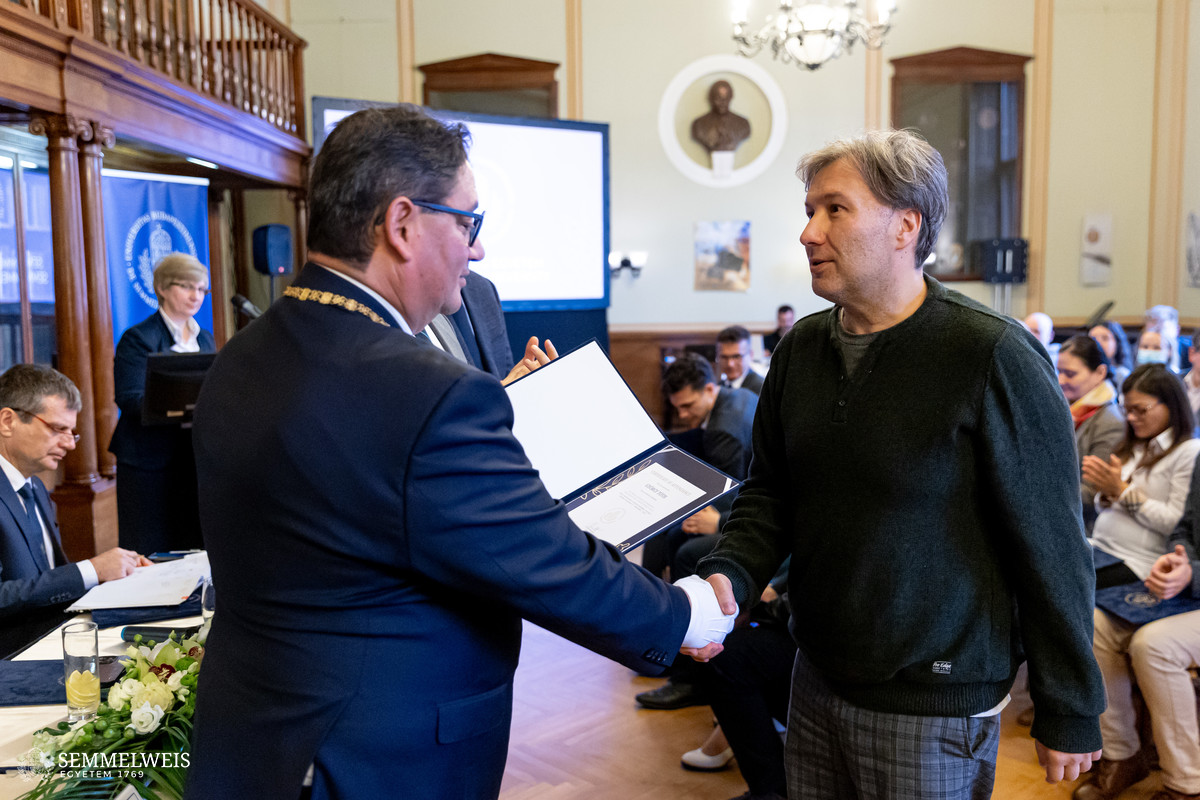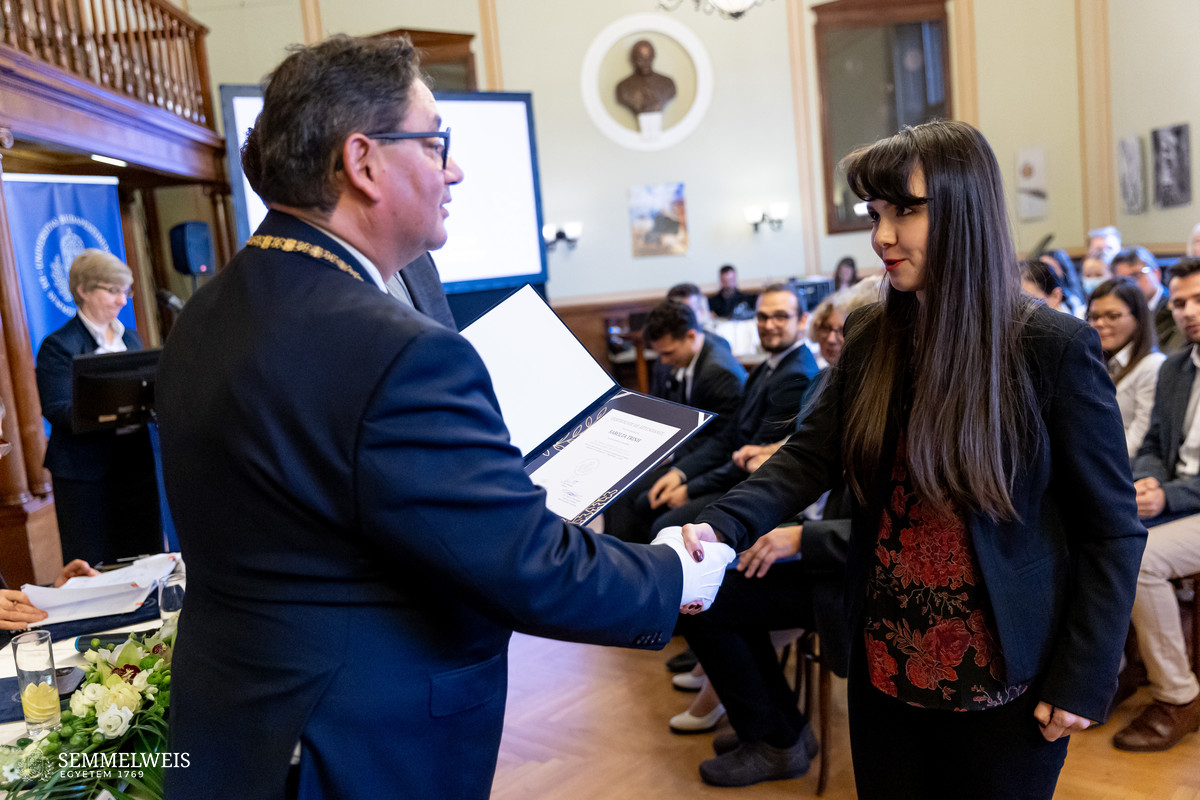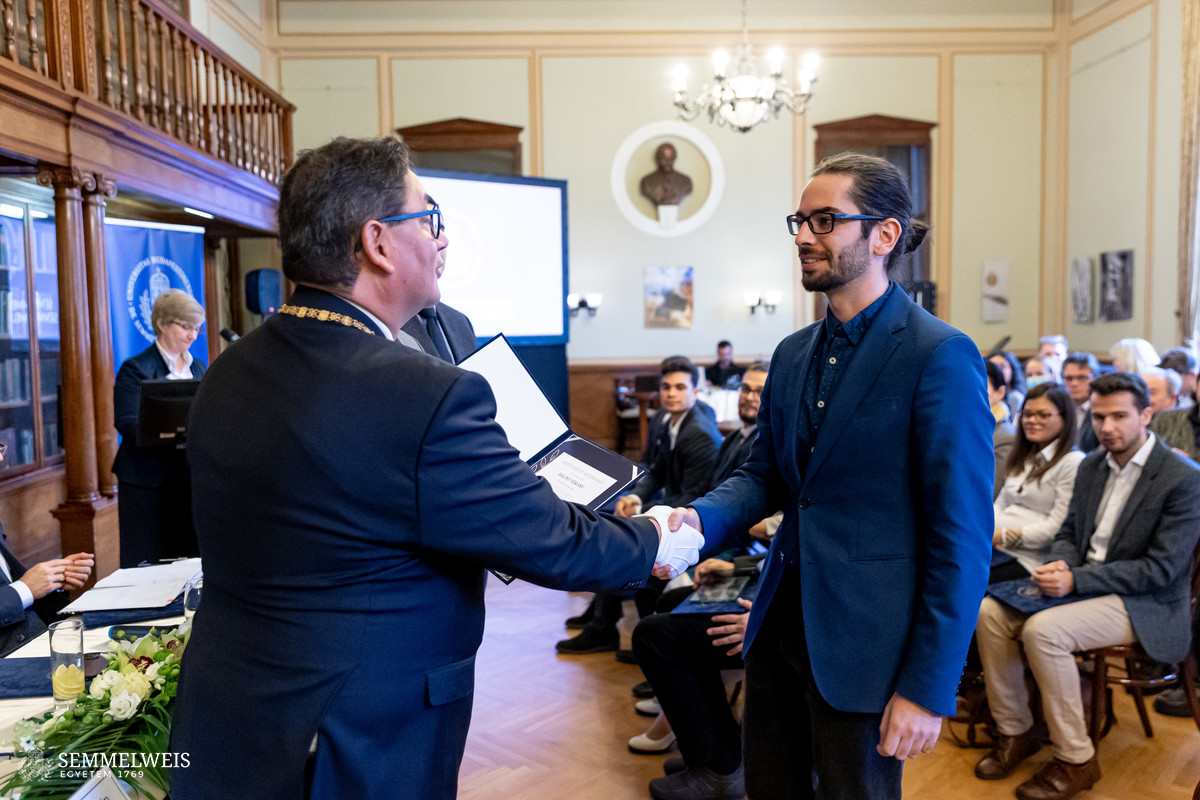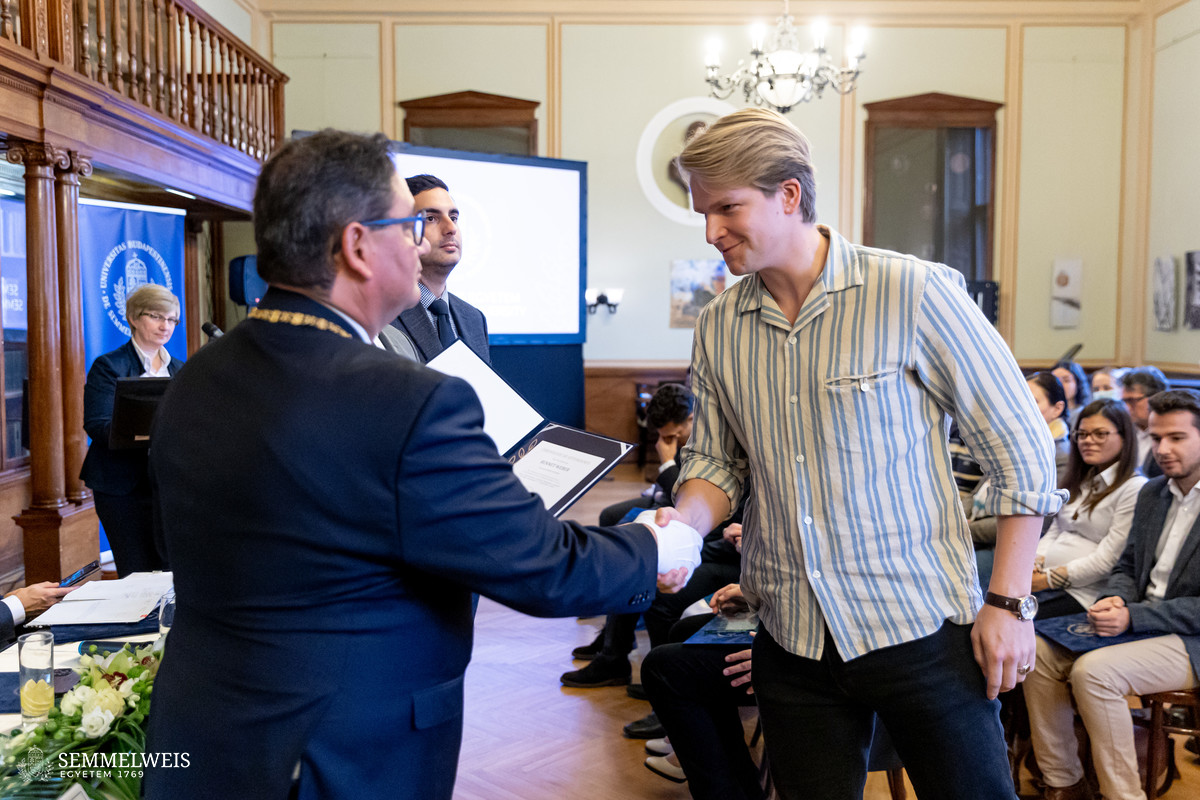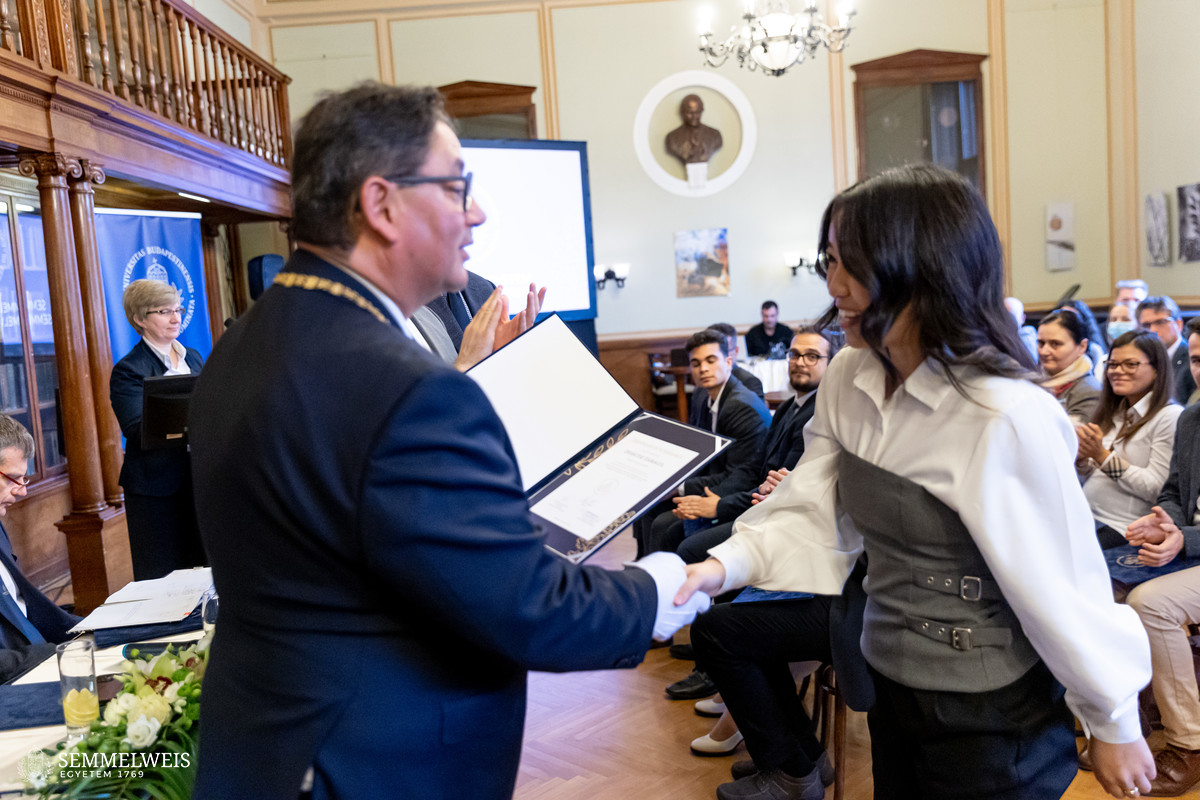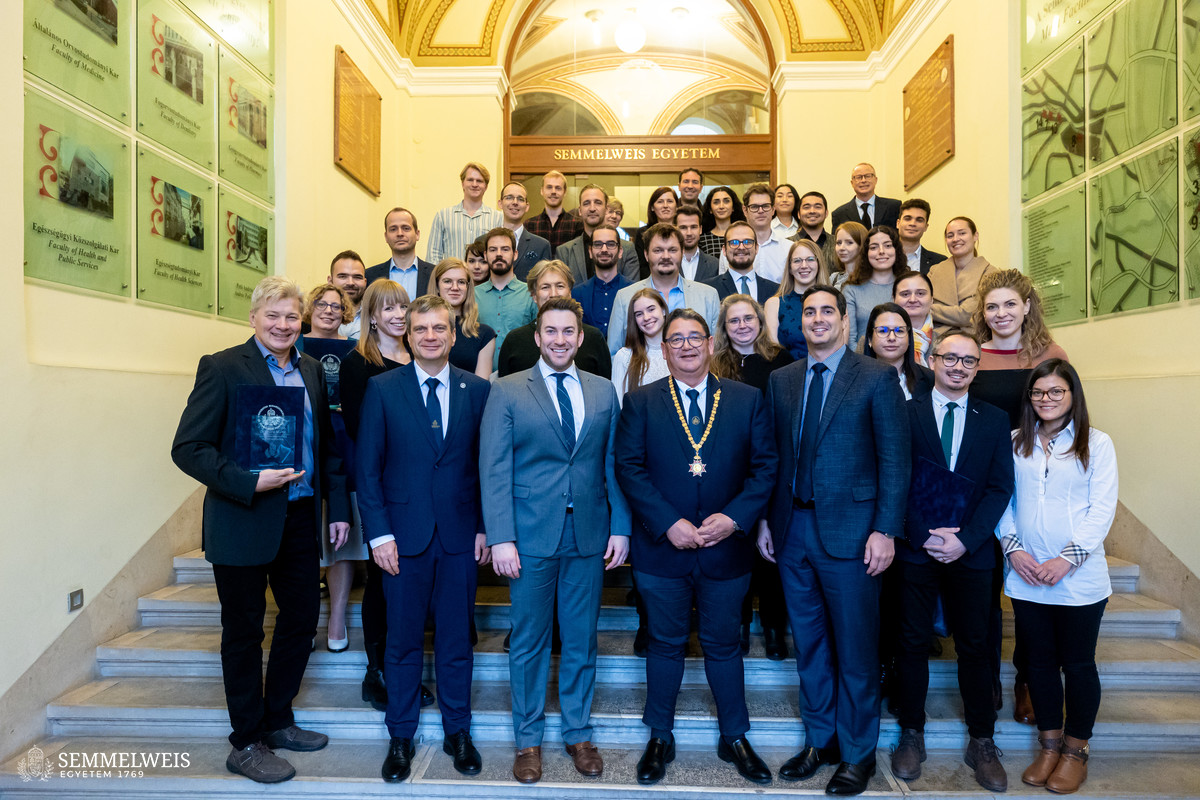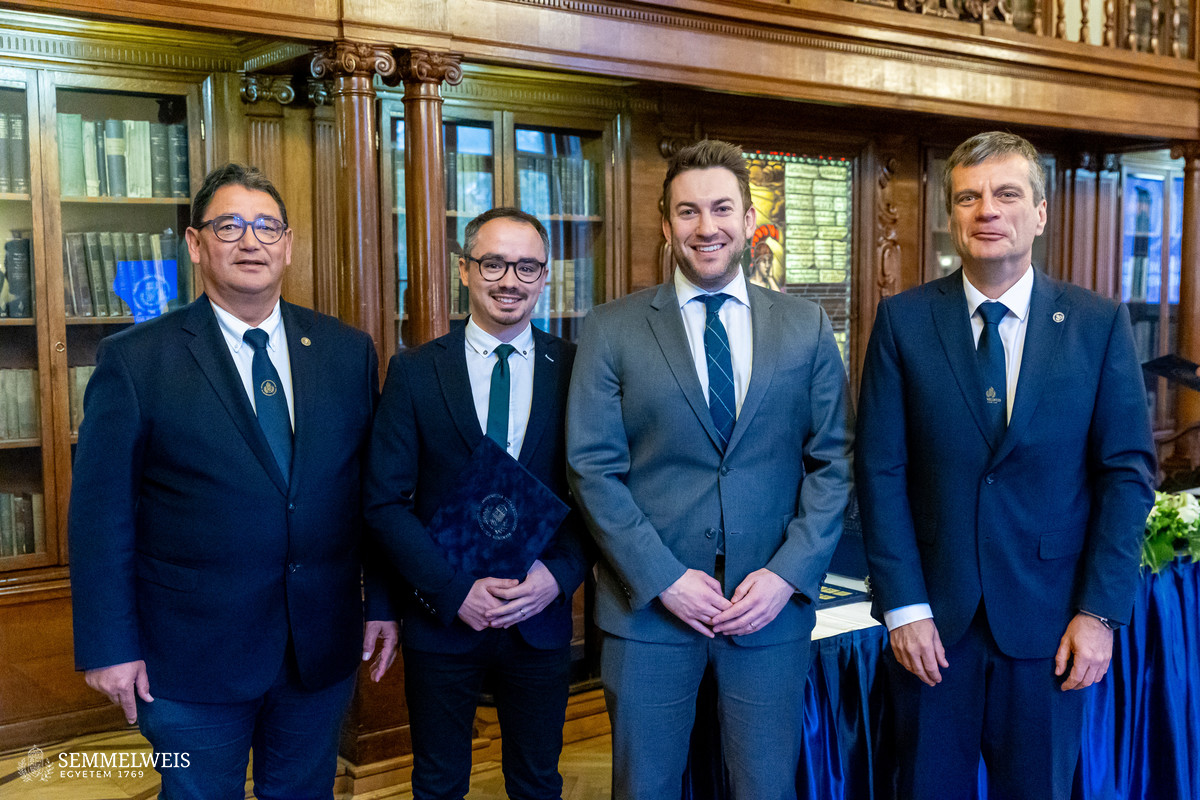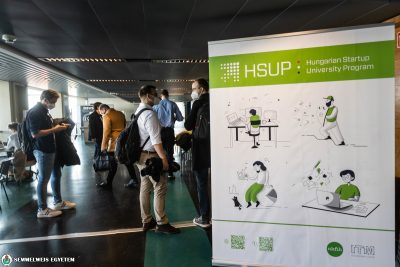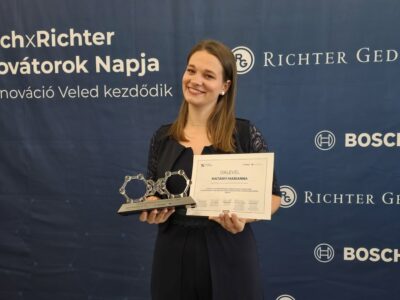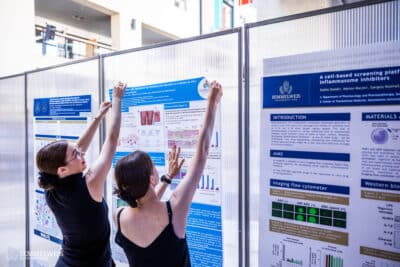The course introduced participants to the basic business principles, skills and communication tools needed to succeed in the 21st century business world. It also covered the ethical and societal aspects of the health care market and the entrepreneurial spirit that complements high-quality academic work.
Medicine is not only one of the most beautiful professions in the world, it is also an occupation that requires lifelong learning and commitment from its practitioners. The structure of Semmelweis University is destined to be dynamic, because as a medical university we teach a discipline that is constantly evolving, where knowledge doubles every year or two. This course aims to equip young, motivated students with the skills and competences to face the constantly evolving challenges of the 21st century
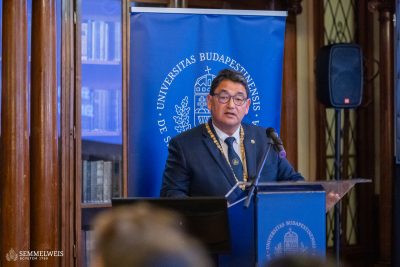 – said Rector Dr. Béla Merkely in his opening speech. As he pointed out, today, a paradigm shift has become indispensable in higher education as well, making it necessary to integrate a business and market perspective into the research approach. This is the only way to achieve breakthrough scientific results that truly benefit people and that not only return on investment, but also make further research possible, emphasized Dr. Béla Merkely.
– said Rector Dr. Béla Merkely in his opening speech. As he pointed out, today, a paradigm shift has become indispensable in higher education as well, making it necessary to integrate a business and market perspective into the research approach. This is the only way to achieve breakthrough scientific results that truly benefit people and that not only return on investment, but also make further research possible, emphasized Dr. Béla Merkely.
The one-week training included presentations by university staff, international guest speakers and invited experts. David N. Bernstein is a Senior Researcher at Harvard Business School, an orthopedic surgery resident physician in the Harvard Combined Orthopedic Residency Program (HCORP), and a Clinical Fellow at Harvard Medical School. Our invited speaker, Victor A. Lavi, is the Senior Director for Research & Development at OrthoPediatrics (NASDAQ: KIDS), a world leader in pediatric orthopedic surgery medical devices, a medical device innovator and entrepreneur specializing in product development, strategy and business development, and marketing. At the opening of the course, in recognition of their professional contribution, Rector Dr. Béla Merkely awarded course designer David N. Bernstein with the title of Visiting Professor while Victor A. Lavi was presented a certificate of appreciation.
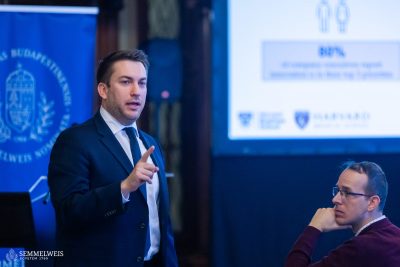 In his course introduction, David N. Bernstein pointed out that the basic aim of the course is to explore how professionals can help as many people as possible in their daily work, emphasizing one of the fundamental theses of behavioral economics, namely that the incentives for human behavior can be more than merely financial. However, no matter how brilliant professionals may be, if they do not speak the language of business, they may find it increasingly challenging to reach agreements with investors to help patients and themselves. Yet innovation from anywhere in the world can now have a global impact.
In his course introduction, David N. Bernstein pointed out that the basic aim of the course is to explore how professionals can help as many people as possible in their daily work, emphasizing one of the fundamental theses of behavioral economics, namely that the incentives for human behavior can be more than merely financial. However, no matter how brilliant professionals may be, if they do not speak the language of business, they may find it increasingly challenging to reach agreements with investors to help patients and themselves. Yet innovation from anywhere in the world can now have a global impact.
The example of this year’s two Hungarian Nobel Laureates demonstrates that no matter how small of a country, no matter where you are in the world, you can make a huge difference that impacts the world for generations to come, and save millions of lives, while also being financially rewarded, as those are not mutually exclusive
– said David N. Bernstein, who also underlined the business nature of health care. While in the United States this is generally accepted, in Europe it is questioned by the majority, but the fact remains that health care is a service that is financed by someone – be it the government, a third party insurer or the patient – which makes it by definition a business. However, optimizing this business, which is unique compared to other market segments, is hindered by the fact that in many cases the user, the decision-maker and the payer of the service are all different entities. The challenges in the health sector are compounded by the fact that health care expenditure worldwide is growing at a faster rate than a country’s GDP. And the business approach aims to bridge this gap optimally by funding health care. The World Index of Health Care Innovation ranks Hungary’s health care system 29th in the world, and 15th in the world regarding medical advances. “The desire to be the best is ingrained in Hungarian culture. So, with the right training, with advancement in business knowledge, why shouldn’t you be at the forefront?” posed David N. Bernstein the question.
His fellow speaker, Victor A. Lavi, held workshops throughout the week on building a business, applying abstract business concepts, and strategic planning, tailored to the needs of the participants. His goal was to guide attendees through the process of product development, how to meet regulatory requirements and find the common intersection of healing work and financial return. In all this, acquiring business terminology was as much a priority as applying and translating real-world business examples into practice.
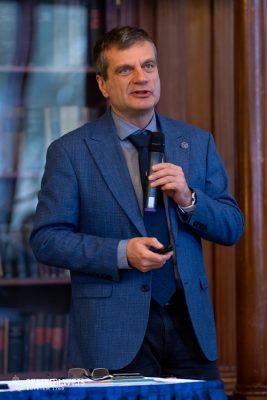 In his lecture, Vice-Rector for Science and Innovations Dr. Péter Ferdinandy highlighted that the ultimate boost of research output is to increase the number of PhD students, which – partly due to its flexible postgraduate programs – Semmelweis University has done successfully, along with a steep increase in the international citation impact of research publications. In order to further improve scientific performance, Semmelweis aims to increase the number of core facilities, encourage the evolution of innovation culture within the research community, support business development via technology transfer and spinoff companies, develop the university’s RDI support system, and last but not least, immerse students in innovation activities. Dr. Péter Ferdinandy also pointed out that even though intellectual property protections happen relatively early at the university, their number is still low, and since they do not reach the private venture funding threshold often, not much business opportunities grow out of them, which needs to change. “Spinoff companies are bridges, that can speed up projects substantially, as they have access to very different financial resources (specific research grants, tenders, industry and investor relations) than the university, therefore need to be involved more and more so,” he said.
In his lecture, Vice-Rector for Science and Innovations Dr. Péter Ferdinandy highlighted that the ultimate boost of research output is to increase the number of PhD students, which – partly due to its flexible postgraduate programs – Semmelweis University has done successfully, along with a steep increase in the international citation impact of research publications. In order to further improve scientific performance, Semmelweis aims to increase the number of core facilities, encourage the evolution of innovation culture within the research community, support business development via technology transfer and spinoff companies, develop the university’s RDI support system, and last but not least, immerse students in innovation activities. Dr. Péter Ferdinandy also pointed out that even though intellectual property protections happen relatively early at the university, their number is still low, and since they do not reach the private venture funding threshold often, not much business opportunities grow out of them, which needs to change. “Spinoff companies are bridges, that can speed up projects substantially, as they have access to very different financial resources (specific research grants, tenders, industry and investor relations) than the university, therefore need to be involved more and more so,” he said.
Regarding the underlying concept of the training, Dr. Renáta Papp, Director of the RDI Business Development Center, pointed out that it is essential to motivate inventors, who can benefit from the licensing revenues of the intellectual works commercialized, by supporting their presence at professional events and fairs and by rewarding them with the prestigious Semmelweis Innovation Award. Furthermore, inventors need to be equipped with the skills and knowledge to successfully bring their inventions to market, emphasized Director Dr. Renáta Papp.
“In general, in Hungary cooperation between the academic sector and the business sector has traditionally been insufficiently close, which has had repercussions on economic development. As a result, university education did not place sufficient emphasis on the transfer of knowledge that would have provided the skills necessary for the social and economic utilization of exploratory research,” Dr. Zoltán Benyó, President of the University’s Doctoral Council, told our website. He added that “we have also introduced changes in PhD studies to help this mindset change, for example by allowing one of the publications required for a PhD to be replaced by a patent. Progress has begun, but further steps are needed, and the Business of Health Care Innovation course is an important opportunity in this regard,” concluded Dr. Zoltán Benyó.
The course built around didactic sessions, individual work and small group sessions, and simulation activities, covered topics of innovation and technology transfer, and by the end of the course students have acquired practical knowledge related to the Porter’s Five Forces Model, SWOT analysis, a successful business plan, marketing and funding, negotiation and leadership skills, and local and EU intellectual property regulations. Those passing the final exam received a certificate at the end of the intensive training.
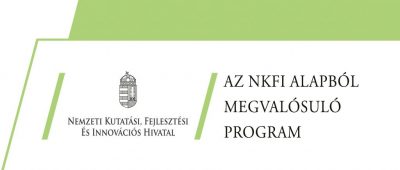 Kiss Viktória, Judit Szabados-Dőtsch
Kiss Viktória, Judit Szabados-Dőtsch
Photo: Bálint Barta, Attila Kovács – Semmelweis University
